#but that it's also important to be aware of that history and its impact
Note
is all true crime bad? genuine question. not referring to the very obvious disrespectful ones that are usually brought up when discussing the topic but rather documentaries and things of the sort. I feel like a lot of the documentaries around real crimes I watched bring up issues that aren't really talked about and a lot of the times are covered by institutions/media and also inform people on various things that they probably wouldn't have been aware otherwise so to me they can be very informational. there's also cases where victims of abduction for example have been recognised years later because of media like this which is objectively a good thing so I would like to know a little more about other negative impacts that might not be so obvious. if you have any source I can research on that's also great. sorry to bother!
i think that "true crime" in itself is a nuanced and varied topic and have no intention of tarring everyone who has an interest in it with the same brush, because there are definitely respectful ways of engaging with it that do their best to avoid and minimize harm. however i think that the popular culture depictions of true crime and capitalization on it as a form of entertainment tend to do more harm than good to both victims, who are frequently exploited for "content" and/or have their trauma dredged up for consumption, and consumers/producers, since a lot of mainstream true crime media reinforces harmful stereotypes, paranoia, surveillance tactics, and social divisions, and sensationalizes human cruelty and suffering. not to mention that this kind of approach to and fascination with horrific crimes and unusually cruel and violent criminals may encourage more people to inflict violence on others in order to gain notoriety and fame.
i don't think it's wrong to be interested in these things and to want to understand what makes people do horrific things to other people. one of my hyperfixations is the history of decapitation/capital punishment and its legacy, which is a topic that is fraught with issues surrounding the abuse of some of the most marginalized and vulnerable members of society. i myself am fascinated by it partly because of my own past experiences with abuse and marginalization. being interested in unpleasant things doesn't make you inherently a bad person, and thought crimes don't exist. however it's really important, especially when it comes to topics like this, to be self aware and critical of the information you're given, and to be careful not to be taken in by popular opinion and stereotypes without questioning them, or to get so immersed in your pursuit of knowledge and understanding that you lose your grip on reality and fall victim to misinformation and bias. believing too strongly in your personal ability to recognize and identify criminals and "criminal traits" and "solve" crimes, especially when the justice system is as flawed as it is, is more likely to lead to incorrect assumptions, the persecution of the marginalized and vulnerable, invasions of privacy and miscarriages of justice than it is to help.
476 notes
·
View notes
Text
This is extremely long and apparently subject to change, which is part of why I'm copy-pasting this version below. I don't agree with significant parts of it (in particular, I take umbrage with some of the delegitimizing language she uses for the Jewish/Israeli narrative and history that she doesn't use with the Palestinian narrative and history), however, I think it's a really really important read, because she addresses a lot of the real problems with the current discourse and real-world impacts that has.
I think this paragraph in particular was something I needed to read:
Arguing with the far left is a waste of time. They have no self-awareness, they are delusional, and they will never stop. They are as fanatical as any of the mob. The only way to make them stop talking is to actually sort this problem once and for all and work for the freedom and dignity of all. And when all is said and done, the ones that will keep complaining will finally be exposed for what they truly are.
She also winds up positing the A Land For All solution as the most likely to succeed, which I do agree is probably correct, for the main reason she argues, which is that it is the option that gives the most people the greatest amount of what they want, the basics of what everyone needs, and hews most closely with answering the competing narratives that exist.
There is No Magic Peace Fairy. Version 2
For anyone who might have read the previous version of this piece of writing, this is quite different from the original. Its spirit and essence are the same, but much has been added. It is very long, but it seeks to understand some extremely complicated and difficult things.
I should have realised when I first wrote it, and then sought to follow its instruction — to listen and learn from a wide spectrum of other people — that it was only ever going to be a working and evolving piece of work. This is version 2. There may yet be a version 3, 4 or 5.
Why did I even write it? Initially — truthfully, and honestly — it has been for myself. It started as catharsis, and it has become a compulsion — the way to “make it make sense.” The way to cope with horrifying scenes across the television and social media, witnessed day after day, and feeling utterly powerless to stop it.
It comes from years of witnessing, and sometimes partaking in long and sometimes very bitter family arguments. Arguments that became spectator sport for friends who would come over especially because they knew they would happen. Arguments that, in retrospect were not actually remotely funny for those of us living through that constant emotional turmoil, nor considering the subject matter. It has been the way to work through those conflicted feelings, and some things that were never really reconciled.
So, yes, it started for myself. But now I have written it, I do want people to read it. I think it may help others to work through some of the same things. And then it would have been worthwhile, especially if it may help some people to find a way to salvage lost friendships and lost relationships from the last few months, because it seems there is a giant rift forming in our communities in Britain.
This has nothing to do with ‘both sidsing’ anything, and it has everything to do with problem-solving. As far as I am concerned, in all of life, you cannot solve a problem that you do not understand. And I really want to understand it. So, I look at both narratives that the Palestinians and Israelis know as the history of their peoples, and think about the lives of individual Palestinians and Israelis, and then I wonder, how could this ever actually be fixed? Is there really any hope for the future?
It is not meant to justify or apologise for anything anyone has done.
I am sure this writing will includes things that almost everybody will take issue with, but it is my hope that by doing my very best to do justice to our collective stories that people can read without anger what it is that I have to say — and please do read to the very the end if you are intending to pass judgement on what that is.
Most of all, I think this will interest people in the diaspora with family, friends, and personal links and connections to the region — Israel or the Occupied Palestinian territories — who wish nothing more than to see their friends and family living in freedom, with dignity and security.
If you have read version 1, the stories of the 15-year-olds have only minor additions, but the narratives and the rest of the article have changed a lot. If you get to a bit that sounds very familiar, skip a bit further down — it is very long to read it twice.
~~~~~
What is the most important narrative of the Palestinian people?
(You do not have to agree with this — I am just telling it how it is told).
Something like –
“The defining event of our history is the Nakba (Catastrophe)
Before 1948, we used to live in Palestine. We loved Palestine. We lived there for centuries. We lived peacefully. We had a deep spiritual and emotional connection to the land. Our ancestors are buried there. Religious sites — Christian, Muslim, Jewish — that had great meaning to all of us were there. It was a rich tapestry of different religions and cultures containing a beautiful and sacred shared heritage.
We had wonderful villages and beloved homes that we built with our own hands. We had gardens with trees and plants that our grandparents planted. We had treasured possessions. We had friends and families and good lives. We could go and come as we pleased.
We had neighbours of all faiths, including Jewish neighbours. We lived contendly together. Some of them had been there for centuries just like us and we liked them, we lived there together happily and in peace.
In the 1900s, more and more started to come. They were fleeing persecution. We gave them refuge. We had no problem with them coming. They were being hounded in Europe and they needed somewhere else to go. Where better for them to be but here in Palestine, where the history of their people was born? And many of them were respectful and we had good relationships with them. We liked them.
But some of them wanted a country. Some of them fought with us, and some of them attacked us, and terrorised us. How could they have had a country in our land? We had been there for generations, and what would have become of us if we had agreed to it? Where would they have stopped? The problem was never them. It was them trying to make a country. And if they hadn’t tried to make a country, everything would have been okay. We could have had a country all of us together. What a beautiful country it could have been. But the country they wanted did not include us.
Some of them were clear they would have kept going until they got more and more of our land, and there is no question they would always have driven us away. Some of their leaders where unashamed and brazen in the way they looked down on us, in their statements that dehumanised us, in their disdain for us, in their colonial intent. They under-estimated us.
The Nakba (catastrophe) was a disaster for our people. In 1948, there was a war. During that war, the Israelis attacked us, killed us, stole our property and ethnically cleansed us from our land in order to create their Jewish state. We left in fear of our lives. We were not the ones that started that fighting. We wanted nothing to do with it. That is why we left.
We didn’t think we would be gone for long, surely once the fighting had subsided we would be back. But then days turned into weeks, and weeks turned into years.
Then it finally sunk in — they weren’t going to let us back. And we realised we were divided and dispossessed. That nightmare was only the beginning for us. They have never, ever allowed us back for 75 years. We lost everything. Our human rights are denied to us. More and more of our land is taken every day. We are not free. Some of us have no freedom at all and no rights.
We want to stop being ethnically cleansed. We want to go home, to go back, to see our homeland, our ancient sites, to be back where we belong, where we have always belonged. We want our dignity, and we want our freedom."
~~~~~
You do not have to agree with the way this story is told, but it has, in some form, been passed down through generations and generations of Palestinians.
~~~~~
What is life like for a 15-year-old Palestinian who lives in the West Bank?
You are told this story of your people from the day you were born. You live under a military occupation. More and more violent religious settlers move into the lands around you. They build new homes and can do whatever they want. They come and go as they please, in and out of Israel. You are not allowed to go anywhere except the West Bank. Their soldiers are always there with guns. They are in charge.
The settlers terrorise you all the time. They stop people farming their land and so you struggle to survive. A few weeks ago, a settler shot one of your friends. They never get punished and they never go to prison. But recently your best friend went to prison for throwing rocks at the soldiers. You really miss him.
Your grandparents left Palestine in 1948 with four children, and very few possessions. Your grandmother thought she would be back in a few days or weeks. Your grandmother’s sister ended up in Gaza and they never saw one another other again. She died recently. You have a cousin who is the same age as you. You know you could have been close if only you had even met.
You see no future the way things are now. There is no hope. You want a different life. You want the things your grandparents had. You don’t want to be constantly afraid of being attacked. You dream of leaving. You dream of the day you go back to Palestine where the house you should have had is, even just to see it, to be truly home, to live the life that is rightfully yours.
What do you do? You resist. In the only way that you can, with the only things that you have. You throw rocks at the soldiers. One day, you get caught, and you get put in a prison. You are tried by a military court, and you stay in prison for a really long time. In prison, people do appalling things to you. Finally, they let you out. What do you do?
~~~~~
What was life like for a 15 year old living in Gaza?
You are also told the Palestinian story from the day you were born. There are good things about your life. You go to school, have friends, and family who you love, you can go out and do things. There are hospitals, and you can get a lot of things that you need. You love Gaza. But you can’t leave Gaza. You can’t go anywhere else in the land or the world except Gaza.
Your life is still hard. Your family struggle for money and to survive, to get the things that you all need. There are a lot of things that would make your life better and easier, but you can’t get them in Gaza. You know that if you lived in Israel, you could get whatever you wanted and needed. You have family in the West Bank you have never met, but you know about their struggles. You have a cousin the same age, who is enduring unimaginable hardships.
The people in charge of Gaza are not good leaders. They can be dangerous and violent if you oppose them. A lot of people in Gaza don’t like them, although some people support them. Your own parents really can’t stand them. These people have been in charge of Gaza since before you were even born. You have learned that there was a civil war in Gaza before that and hundreds of people were killed or wounded. There has never been an election since.
You know they fire rockets into Israel because they want to dismantle it. You want a different life, but it’s never really worked or got anywhere. It seems futile. And you know that every few years, the bombs will come. Everyone you know has lost someone or something from the Israeli bombs. You don’t remember that much about the last time, but you do remember being really terrified, and you remember that your Dad cried when his brother was killed.
Then one day you hear news. News that Israel has been attacked by Gaza. Israelis have been killed, and some are even being brought into Gaza. Your heart sinks. You have a funny feeling in your stomach. You know what is coming.
~~~~~
To these two children, these cousins, Zionism can and only ever will mean catastrophic dispossession, oppression, and Jewish supremacy. The only Jews or Israelis they have encountered have either bombed them or terrorised them. Israel is a colonial entity. It never had a right to exist. Israelis are settlers. All they ever do is steal land. How could you expect them to see it any other way? There can never be any nuance, or any grey area about it. It could never have any legitimacy in their eyes. How could you expect or ask them to empathise with Israelis when you consider what they have lived and are living through?
For them, anyone who describes themselves as a Zionist in any form, even a liberal Zionist, could only ever be perceived as somebody that cannot be reasoned with, is trying to justify and support the unjustifiable, and is nothing but a settler and a tool of their oppression.
~~~~~
What is the dominant narrative of Jewish/Israeli people?
(You do not have to agree with it — I am just telling it how it is told).
It may be slightly different for secular Israelis and Diaspora Jews, but it goes something along these lines:
“We are the people of Israel. This is where our religion and our language were born, where we built temples and our ancestors are buried. We have and always have been surrounded by enemies on all sides. For millennia, we have been scattered throughout the world. We were driven from Israel and we went to Europe, the Middle East, and Africa. Throughout history people have always tried to kill the Jewish people. They didn’t like us being Jewish. There were always pogroms and mass killings. In some places people would hide and pray together in secret. It is our duty to keep the Jewish religion alive in their honour.
In Europe the pogroms got worse and worse. A few of us left Europe for a better life in Palestine. But most of us stayed in Europe. And most of us died in Europe. Six million of us. They did it because they said we were responsible for everything bad that had ever happened in the world.
Most of our so-called friends and neighbours said nothing as we were terrorised and led away. They carefully planned and counted how they could get rid of each and every one of us. They tried to annihilate us completely from the face of the earth. But as a people we lived on.
Jewish people had been coming to Palestine from Europe for years before 1948 fleeing the persecution. We came and we bought land fairly and built our lives there. We were happy. We wanted to all be together again, in a place that had meaning to us, where we would be safe. We knew we needed freedom and independence, so that this time it would never, ever happen again.
People say that we never needed a country, but what do they know? Jewish history has taught us things that they can never possibly understand. Jewish history has taught us that the world will always betray us, and when that day comes, our friends and neighbours will walk on by. We are a minority, so we must stick together, protect one another, keep one another safe. We knew we needed freedom and independence, so that this time we would have a safeplace where we can go and live when the world finally turns us on again, as it always does.
And In 1947, the UN agreed we could finally have a state of our own. We were so proud and overjoyed. What an achievement for us after everything we had been through.
We never wanted to fight with the people already living in Palestine. Yes, before 1948, some of us lived together peacefully. But it wasn’t a Utopia. Some of the people welcomed us and provided us with a safe place to live. We had good relationships with them.
But some of the people didn’t want us there, we were outsiders and they never liked us. Some people went to the British to get them to stop us from coming to Palestine. And even before 1948, there was a lot of fighting between us, and some of us were massacred even in Palestine.
But we could have found a way to live together peacefully, in two states, and they could have lived in our state just as we could have lived in theirs, just so long as we had a State. That is all we ever wanted. We could have divided and shared the land.
But they could never let us have it. Never. And when the British finally left, we saw our opportunity, we declared our state. We had no intention of taking anything from anyone. We just wanted a state. And then every single one of our neighbours, all the countries around us invaded us, from every corner of the land. Enemies on all sides. They surrounded us and we found we were alone, again, just as we always have been.
But this time we fought back. We fought for our freedom and independence and dignity, and our right to live and exist and not just accept to be killed, and mainly, for most of us, because we actually had nowhere else to go. It was a war, yes, we took land yes, but we didn’t start that war. It was existential, because how else exactly do you expect we could have guaranteed our security and safety surrounded by neighbours who were baying for our blood? What would you have done?
Then after 1948 the Middle East erupted. The Jews in the Middle East had always experienced persecution. But this was worse than ever. It was intolerable. They blamed those Jews for Israel. Hundreds of thousands of us were ethnically cleansed out of homes we had lived in for centuries, from Ancient communities all across the continent, and we left to build new lives in Israel. Over half of Israelis today are descended from those Middle Eastern Jews.
Now we live together in Israel. We stick togehter and we fight together. We have fought war after war after war. They have tried to kill us from all sides, time after time. But each time, we fight back harder, and we win. We have and always will be surrounded by enemies, but we will always fight back.”
~~~~~
You might not agree with a single word of this story. But this story, in some form or another has been passed down through generations and generations of millions of Jewish and Israeli people.
~~~~~
Now imagine the life of this 15-year-old born and living in Israel
You have been taught this story since the day you were born.
You live in a Kibbutz. You have friends. You like the outdoors and sports. You get good grades in school.
Your grandparents live nearby. Your Grandad came from Yemen as a refugee, as a child. He told you that his family were being attacked and threatened after the 1948 war, so they left their possessions and homes behind in Yemen, and they came to Israel instead.
Mostly you are happy. You are so excited you have a new boyfriend or girlfriend who you really like, but your parents don’t know yet.
But you really hate the rockets. You have never known any life without rockets. You know that some of the rockets get intercepted, but they still get through all the time.
There are bomb shelters everywhere. At school, in the playgrounds, in the bus-shelters, and at home. The sirens can go off at any time and then you have to run to the shelter. Even if you are busy doing your homework, or asleep, or on the toilet. The noise of the sirens never stops making you jump. You are used to it, but you still get scared and you hate it, and the sounds of the rockets make you shake.
You know in a couple of years you will be conscripted into the army. Everybody goes. You do and you don’t want to go. You want to go because you know it is your duty to protect the State from its enemies, just as everyone in your family has always done. But you are scared about it, and you don’t know what it will really be like. People don’t talk about it.
One weekend, your parents agree you can spend the night with your cousin. They live 40 minutes away. She is like a sister to you. So, you go on Friday. You have fun, watch a movie, chat for ages, and you fall asleep late.
The next thing you know your Aunt is waking you both up. It is Saturday morning. She is in a panic. Something is happening. Your parents have messaged. Something is wrong. She says there are men everywhere in the Kibbutz with guns. You turn on your phone. There are messages from your parents and your brother. They are in the bomb shelter. You try to call them. You can’t get through. You feel the panic rising in your chest. No, please, no. You ring your boyfriend or girlfriend. No answer.
~~~~~
This child has never met a Palestinian that lives in any Occupied Palestinian territory. All he/she knows about them is that they fire rockets at Israel and have done his/her whole life, and once every couple of decades they commit extremely violent and horrific terrorist attacks. That is what he/she knows because that’s what they have been taught and also what their lived experience has taught them.
Many Jewish and Israeli people believe when they talk about Zionism they are talking about, “Somewhere safe for Jews to live where they will not be attacked, where they can call home, and where they have self-determination.” How is it possible for this 15 year old child, given the stories they have been told and the life they have led, to be anything other than a Zionist, when it is defined like that? And if they are told they are a ‘settler’, or an ‘evil oppressor’ and that that is why they deserve to die, they will look at you with wide eyed wonder and assume you are a lunatic.
The reason they can conceive of the Jewish people as settlers who live outside 1967 borders and not themselves is because they do not see them as being in the, ‘Right for somewhere safe to live’ group of Zionists. They are considered to be religious extremists and supremacists, what they see as a distorted and extremist form of Zionism, and they don’t consider it the same.
~~~~~
There are many incredibly sad and depressing things about all of these stories. But the part to me that makes it seem most tragically futile — is that for a very large number of individual human beings that ended up living in either Israel or in the Occupied Palestinian Territories in the 1950s -1960s — their stories are almost the same. Most of them were running away from something, and most of the time, the people who are doing the running away are not the people doing the fighting or the massacring.
It is a story of being a refugee, of fighting for survival against all odds, of 20th century dispossession and mass displacement. A story of being blamed for things they did not do and being held to account for debts that they did not owe. The tumult of 20th century history created a shared heritage — that over a very short time hundreds upon thousands of people were displaced — Jews fleeing Europe to Palestine, Palestinians fleeing during the creation of Israel, and almost all the Jews across the Middle East then fleeing to Israel in the few years after it started.
Part of that shared heritage became about yearning to return to a Holy piece of land that carries promise and a deep spiritual connection. It really shouldn’t be that hard to explain to one another — and indeed the rest of the world, why we cannot just ‘let it go’.
I am not trying to rewrite history and say that every single person in the years leading up to and including events in 1948 was an innocent bystander. Absolutely not. I am just saying that, generally speaking, as is almost always the case — when it comes to atrocities, it is normally extremists that engage in it, that end up calling the shots for everyone, and it is them that end up dictating history.
And it is extremist ideologies that are plaguing us today. One is an ideology of Jewish supremacy. God’s chosen people, Israel is God’s gift and therefore comes with a right to take land off anyone and everyone. The other is an extreme, dangerous and corrupted version of Islam — a highly repressive ideology where human rights do not exist, and it exalts in the death of Jews.
These people — all of them — they are the mob. ‘Death to the Jew. Death to the Arab’ One or the other in their rightful place, subservient to the other, or better yet, dead in the ground.
Most people are not the mob. Most people are not sociopaths. Most people just want to live and get on with their lives, they want to have their basic needs met, their human rights, and they want their children to grow up happy and healthy with a bright future ahead.
It is important to understand though that the bonds of community and peoplehood are also part of a basic human need. The need to maintain relationships with brothers, sisters, cousins and friends who live in our communities together with us, who have a shared history with us, who support us, and to whom we are loyal — it is part of the human experience.
The stories of our own and our friend’s grandparents, the loss of livelihood and dreams for the future as they packed their bags and fled — these are the stories that make us peoples. And it is these stories that bind us together within our communities much more closely than any ancient religious text or any ancestral DNA test ever could.
And so when people say, “The Jews and Israelis are not a people. They are fakers, they are ‘Europeans’ pretending to have links to a land that has nothing to do with them.” Or people say, “The Palestinians are not a people. They are just ‘Arabs’ who could have gone anywhere, who have no real history and whose only goal in life is to terrorise Jews,” these will both only ever be seen as inherently anti-Semitic or Anti-Palestinian statements that erase and deny large parts of our collective heritage, and neither will lead to any kind of constructive dialogue. Who is anyone to make judgements about what another people is that they do not belong to?
And so we end up where we have got to today –
From the Palestinian side, what I think is difficult for somebody who is not Palestinian to understand, is that telling them that they should give up on the right to return — for many — is impossible. They can’t do it. Understanding and honouring Palestinian history, which is rich, and complicated, and is largely unknown to many people, for them it is part of their identity. Poetry, art, great thinkers, great writers — they are all there for the world to see if only they would bother to look.
And even worse for a Palestinian, to suggest that everything that has befallen them was somehow their fault because they refused to give up on their history, this could only ever be met with fury and be seen as gaslighting.
It is essential as well to remember that this land — it is not just any land. It is not so easy to walk away from it as any other place on earth. It is Holy Land. It has meaning to everyone associated with it, and everyone wishes to be able to walk free inside it.
Having an enduring determination to free themselves from a brutal occupation that does nothing but dehumanises them and steals from them — and a longing, ultimately, to return to their homeland, this is inherent to being a Palestinian. They cannot ‘Un-Palestinian’ themselves.
So the Palestinians will say, “What world would you have us do? You the world have done nothing to help us. You who have been silent and you care nothing for our oppression. You have abandoned us to unthinkable injustice and suffering for decades. You who sit comfortably in your homes have no right to moralise at us or criticise us and tell us what we should or shouldn’t do. We have no means whatsoever to fight for our freedom. No one is on our side. We are alone. We will do whatever must be done to fight for ourselves, our human rights, our land.”
The Palestinians are living in an impossible nightmare. There seems to be nothing they can do to free themselves that doesn’t make their situation worse. What exactly are they supposed to do when they live under an occupation, have no civil rights, no means to fight for themselves, and the people with power that could do something are not standing up for them? And when all means of civil and non-violent resistance are completely denied or futile, support for more violent resistance will become inevitable.
And it was indeed inevitable that 7th October would come. Warning after warning has been given about the Occupied Palestinian territories and the blockade. Warnings about human rights abuses have gone unheeded. Warnings that if Palestinians are not given their freedom what would happen. Warnings that it was totally unjust, immoral and illegal for Palestinians in the West Bank to be under military occupation. Time and again it has been said it is a danger to the security of Israel, and it was ignored.
But the problem for the Palestinians is that terror was never ever going to work — because the people in Israel believe it was established and is needed as security because of the risk of terror against them. So the idea that they could be terrorised into giving it back, or into leaving — this is an absurdity. People talk of ‘Hasbara’, but terror is and feeds Hasbara. October 7th has done nothing but make people believe in Zionism even more (a safe place to live in their eyes). Zionism burns greater than ever with the fuel of the fires from the Hamas rockets. All terror has and can ever achieve is further encroachment onto Palestinian territory — the literal opposite of a free Palestine.
What happened in 1948 is horrendous. But what of it, to that 15 year old Israeli child? Whose own grandparents had nothing to do with it, and were themselves dispossessed, as is the case now for so many people living in Israel. That child who has only ever known Israel as their home.
So Israelis will say, “World, what would you have us do after October 7th? People outside Israel, you can say whatever the hell you want, but we are here alone. We have and always have been surrounded by people on every side who wish to murder each and every one of us until we are annihilated, and in the most painful and brutal possible way, as has just been demonstrated plainly for all the world to see. You, who do not have any understanding whatsoever of what that is like, do not get to tell us what to do. We will do whatever we think is necessary to strengthen our position to ensure this cannot happen again.”
What people are missing is that this conflict is unique to any other case of the ‘coloniser and colonised’ in history, because the people doing the ‘colonising’ are half the people of the land, people who have a genuine existential fear of everybody around them that does not come from nowhere, and is deeply ingrained into most people’ psyche. Most do not have anywhere else to go, because most of their grandparents came to Israel as refugees, and so they cannot perceive themselves as a ‘colonial settler’ in any way. So they will never stop fighting back at terrorism for their right to live without fear of attack.
This links to the Jewish people in the diaspora who support Israel and is extremely difficult for non-Jewish people to understand.
For many Jewish people, memorialising the repeated attempts to eradicate Jews throughout history, most notably the Holocaust, and remembering and honouring ancestors who have died to keep the Jewish religion alive is considered essential.
Every festival, every prayer book, every cultural activity and a very large number of conversations includes this on some level. It is integral and inherent to most people’s identity. So if people feel that their Jewish counterparts, and very often family in Israel are in existential danger, they can and only ever will see it as a moral imperative that they must be supported.
Asking Jewish people to somehow disavow themselves of this notion is impossible. To tell most Jewish people they need to ‘get over it’ because, “they are a coloniser and their needs do not matter,” is completely meaningless to them.
It is not grounded in reality, and something that can and will only ever be perceived as an attempt to ‘UnJewish them’. I.e. to eradicate significant parts of Jewish history and day-to-day life and community, and thus could only ever be perceived as deeply antisemitic in its very nature. The more these things are denied as relevant, the more people will fight back against what they see as gaslighting.
But for those people in the diaspora who have blindly, unquestioningly, dutifully and uncritically supported Israel, while its government drifts ever further into the grip of right-wing extremism and corruption, must surely now see that was a mistake. If you had a friend or a loved one on a destructive path of self-sabotage, would you just let them carry on?
It is great tragedy of Jewish history for both Jews and Palestinians alike that self-determination and independence for the Jewish people, at a time when they needed and wanted it so badly would come at someone else’s expense. Something that is so freely and unquestioningly given to so many other peoples, but not the Jewish people. Yes, it is unfair. But it did come at their expense. I think that most Palestinians only opposed it, not because they oppose Jewish people — it is the bit about it being at their expense.
We can argue forever and eternity about, “Oh, but it never needed to be this way. If only you could have shared with us. If only in 1947 this or that. And if only in this peace agreement this year or that year,” or whatever.
But what of it to those 15 year olds living in Gaza and the West Bank? It is an irrelevance what was ever intended. What was intended bears no resemblance whatsoever to their lived reality. The Jewish dream of Zionism became their nightmare. I know this is an extremely painful and bitter pill for people to swallow, but Zionism since its inception has resulted in nothing other than subjugation for them. And it is not normal for a country to not have any proper borders, and for one people to control another in some parts of it.
And while it continues to happen, Zionism will continue to be seen as Jewish people being allowed to have control over other people. This was never ever how Zionism was originally intended for a lot of people, and it is not what they think it means. Far from it. But this is where it has come to, and intentions do not matter, because it is our actions that count. Once you understand this, it is really not difficult to see how this is fuelling dark and extremely dangerous conspiracy theories about Zionism, which are dragging us back to a place in history that we most definitely do not want to go, and it endangers us all.
We need to open our eyes to reality. As the bombs reign down in Gaza, destroying thousands of lives, after well over 100 days, there are people dying from starvation. This must end, immediately. It is abominable. The rockets are still coming. And even if you stop them today, while there is occupation in any part of the land, they will just come back tomorrow or the next day or the week or the year or the decade after that. And surely from the Israeli side, negotiating whatever terms to get as many of those hostages out alive, going through what must be unthinkable terror, at any cost, must be prioritised above all else.
And I am very sorry, because I know people will not like this. But this ‘war’ — it is not about destroying Hamas. It is becoming increasingly clear by the day that not only is destroying Hamas impossible, but Israel’s government are violent ethnonationalists. The far right threaten to collapse it at every mention of a ceasefire — the only thing that will get most of those hostages back alive — and so it carries on. And extreme ideology is much more widespread within the government than just the furthest right that are propping it up. The very leader of Israel himself is at the heart of it.
When you hear what they are saying, it is very clear that they have far more sinister intentions, and we must take them at their word. Allowing people to starve, making plans to drive them off their land into other places, destroying heritage sites, and yes, mass killing — that is ethnic cleansing. It is the definition of ethnic cleansing. It is illegal under international law, and it must stop.
People say, “Oh, but Hamas are stealing the aid.” Maybe they are, maybe they aren’t. I don’t know. I don’t know and I don’t care. I don’t care because it is an irrelevance at this moment in time to that woman looking into the eyes of her hungry child as they wither away and die. It is enough.
Could it ever be solved?
There are those of us that would be willing to give up on the dreams of our respective peoples, and not because we wish to throw them under the bus. But simply because we would just accept any solution, in whatever form, that would bring the suffering of all people to an end, and as quickly as possible. Because we believe that none of any of this is worth the blood of anyone’s children.
Because we look at those dreams of security through self-determination, rights to return, and we look at where we are today, and we see that none of any of it has delivered on its promise. We see that the world is a very different place to what it was in 1948. We recognise that there are people on the ‘other side’ that we would much rather share a country with than the ‘mob’ on our own side.
Because we know that our histories are worthless if they demand that we ‘unhuman’ ourselves.
Because we recognise that we have inherited the most Unholy mess.
But we are few in number, because the majority of most peoples cannot let go of their respective narratives, either in whole or in part. And so the solution that must be found is one that could satisfy the majority of the narrative of both peoples.
Israel already has half of what it wants — it has the state. But it does not have security, and any pretence of it has been an illusion, one that was violently shattered on October 7th.
The Palestinians meanwhile — they have nothing of what they want.
A one state solution — this does not satisfy the Israeli narrative, because it requires the undoing of Israel. It gives many Israelis nothing of what they think they want and everything they are afraid of. If you were that panicking aunt of that 15 year old Israeli child just now, would you be agreeing to open that border?
But I do not think the two-state solution really satisfies the Palestinian narrative. Because in that narrative, things were better before Israel, before Zionism, where everybody just lived together. And mainly because people want to able to walk free across the land — the right of return. The two-state solution may bring freedom and dignity, but I am not sure if it would give enough people what they really want.
Ultimately it comes down to one of the reasons this has been so intractable for so long. The Jewish State and the desire to control and ensure the continued right of Jewish immigration to Israel, and the presumed need to maintain a Jewish majority to enable that, vs the Right to Return of the Palestinians. ‘The War of Return’ as it has been called. The thing that neither side seems to be able to give up, that seem to be in direct conflict.
So what do we do? Throw our hands up, put it down to a bad job and just give up. (What the world has done). Keep blaming each side’s ‘propaganda’, each side’s education system, each side’s unwillingness to budge. But it won’t work, because it is asking people to let things go of things that they cannot let go of, things that are integral to the history of their peoples.
Human beings have been solving problems since we existed and there is no reason why we cannot solve this one.
There are many possible ways to solve it. The confederate two-state-solution is one example of a way to square the circle: https://www.alandforall.org/.
I suggest it not because I am wedded to it but because it seems to me that it would satisfy enough of both narratives to work. There may be multiple other ways to do it.
How do we get to it? As a possible example. We start with two states. Real states. Not a bit of a state or half a state with the other bit not connected to it and some people still being occupied that could never be acceptable, and was always going to be fought against. A real Palestinian state, whose borders are secured through international peacekeeping. But with that state must also come the promise and the goal that over a reasonably short period of time, everybody who wishes to cross that border gets to cross that border, until eventually, one day, ideally, there isn’t a border. People live wherever they want, but retain citizenship in their own state. And with regards specific land and homes that cannot be returned, real reparations are made. This is just one example of how it could be done.
As we keep hearing — 7 million Israelis, 7 million Palestinians. No one is going anywhere. But at some point, it is my opinion that, probably, for this to ever end, everyone must be able to go everywhere.
Two peoples living side by side. All free to live and move freely across this ancient and Holy land that is so special and meaningful to all and must be shared. Finally able to mix and become humanised in each other’s eyes. Christian, Jew, and Muslim, free to access their ancient and Holy sites. All of us united together in the spirit of mutual respect and tolerance.
Cooperating together to fight the only war that there should ever have been — the only war worth fighting.
Everybody vs the mob.
Not a religious war, not a war of the us or them, not a war over rights to the land and houses. But a war of the moderate and the just against the extremists that have desecrated our respective religions and turned them into something ugly. The lunatics marginalised, silenced and rejected. As opposed to what we have now — the sociopaths leading the charge and everyone else marching dutifully along behind.
People will say this is idealistic nonsense, a pipe dream. But what is the other option? Another twenty or thirty years of failed peace agreements and more of the same all over again? And with every round of violence, the violence gets more violent, the mob gets stronger and more popular on both sides as their ideas are seeded. And the mob is hard to fight, because the mob involves fanatic religion that cannot be reasoned with.
If we keep allowing them to get stronger and stronger, I think they will eventually set each other, themselves, and quite possibly the entire world, alight. Literal World War 3 with Jerusalem at the centre.
“How can you ask us to negotiate with them?” I hear you say. “Them, who are ethnically cleansing us,” or, “Them who wish to annihilate us,” depending on which side you are on. But here is the rub — you cannot terrorise people into leaving and you cannot bomb people into submission. Neither has ever worked. We cannot ethnically cleanse or genocide our way out of this for either people, one way or the other. Any other solution other than a diplomatic solution will lead us nowhere but the abyss.
Israelis and Palestinians are not all inherently genocidal oppressors or inherently genocidal terrorists. (As unfortunately lots of people are saying) Of course they are not. Maybe right now in Gaza most Palestinians do support Hamas in what they see as armed resistance, and most Israelis do support the actions of their government in what they see as a war. But both things have become intertwined with both mobs, and so they are not what each respective side thinks they are. The ‘armed resistance’ — a pogrom style massacre by the ‘death to the Jew’ mob, and the ‘war’ a flagrant breach of international law and an obvious attempt at ethnic cleansing by the ‘God gave us Israel, death to the Arab’ mob.
I am not very sure that most of any of them either know or believe exactly what has or hasn’t happened. The information they are receiving is very different to ours. And in times of heightened escalation of violence, people retract into the respective narratives of their people as they become reinforced. “If it’s a choice between us or them, I choose us. And for me to be able to look myself in the mirror, I must choose to believe what I choose to believe.”
Both believe so deeply within their heart and soul that they are on the side of righteous justice. For one it is ‘the right to just exist’, For the other, it is ‘the right to life, dignity, freedom from cruel and violent oppressors’. So they are both engaging in the collective delusion that because theirs is the side of the right and good, their soldiers/fighters must also be right and good.
Their people can’t possibly be the ones committing the crimes against humanity, and they cannot believe the worst things that are being said about their own side, only the other. But this is not the reality of wars and fighting, and definitely not in a conflict that has gone on for this long where this amount of hatred has become so entrenched, and most of all not ones which involve religion. To me it seems very likely that most of the worst things that are being said about both sides, are in fact, the true things.
As it turns out, many of them were always, are becoming, or have become, the mob.
I think almost everyone, whatever they say, would in fact be appalled if they were actually to see the violence that has happened, and is happening with their very own eyes. But they do not want to open their eyes to see it for what it really is, because they are on the side of the right and the good.
I know there are people of every colour and creed who no doubt I could become friends with, get along with, and love dearly. But also there are people of every colour and creed that I could not stand to be in the same room as. I know this because I am not a racist. Human beings are human beings, that is all we need to know. And if we find ourselves making any collective statements about all of a people, we are probably becoming the very thing we so vociferously claim to the world we are not.
I think that racism may well have become entrenched on ‘both sides’ but I am not sure that it is exactly racism — perhaps a better way to put it would be ‘othering’. “They did this, they did that. They support this, they support that.” And the only way to stop doing it is not to tell each other that we need to unlearn or erase our respective histories and ‘un-brain’ wash ourselves. It is the opposite.
We have to first human ourselves. And then we might have to temporarily UnJewish and UnPalestinian ourselves for short amounts of time. Then we learn each other’s history. Then we will be able to find solutions together.
How can we work together to solve this?
This part of this piece of writing — specifically — it is for us in the diaspora. Hardly anyone in the Middle East is in a place to hear any of this this right now, and too many of them are much too busy trying not to die or get killed.
We in the diaspora, we are trying very hard to do what we can to stop this, and to help. But how is it possible, that all of us who seemingly so desperately want the same thing — freedom and dignity for everyone, and yet still don’t seem to be able to get anywhere without offending and upsetting one another? How can we expect people in the Middle East to co-exist, if we cannot even have a conversation?
I believe we are talking to each other in languages we do not understand, and until we realise this, we will only ever talk past each other. Almost every conversation will have the opposite of its intended consequence, and make the other person believe they are even more right.
We will only ever find it inconceivable that people or friends or colleagues that we thought were ‘nice’ could have views that seem totally barbaric in our eyes. But if we could talk in languages each other could understand, it would get easier. Or at least if we can’t, if we tried to hear what the other is really saying.
We are not listening to, or being respectful of one another and as a collective we are so much weaker and so much less powerful for it. Because the discourse has become so toxic that we cannot work together to find solutions.
I know I myself have been done these things, but even as we try to so hard to understand and explain, it is so easy to offend. I think the reason we are offending each other is because the words in the mind of the speaker sound very different to the ears of the listener.
If the conversations are had respectfully in the spirit of achieving genuine mutual understanding, that is great. But if it is an argument to convince the other person that you are right, forget it.
Take the debate about whether shouting ‘Intifada’ is Anti-Semitic.
If you tell some Palestinians that shouting, what to them means ‘resistance’ against a state which is and has been exercising immense and disproportionate power against them and has done for three quarters of a century, is anti-Semitic, they will inevitably wonder what planet you are living on. How exactly it is that you expect they can possibly fight for their freedom? And why do you continue to engage in this collective delusion that just condemns them to suffer and die?
But if you try to tell most Jewish people, that what they perceive as the indiscriminate killing of Jews in terrorist attacks is not antisemitic, it is inevitable that they will not believe you. In fact, they will see you as yet another of the seemingly innumerable people in the ‘Death to the Jew’ mob.
Every conversation is having the opposition of its intended consequence. Convincing the other person they were more right than they were before.
Think about the way that we frequently use each other’s non-mainstream diaspora voices as a stick to beat each other with. (And this is not necessarily a criticism of those voices — some of them are very important — it’s just explaining how they are seen).
People say to Palestinians:-
“Look, this Palestinian is good, they think Zionism is okay, and you should just accept it. If only you could stop being so silly like them it would have all been over a long time ago. They agree that you haven’t exactly helped yourselves.”
How could a Palestinian ever consider this as a legitimate argument? Views that surely could only be perceived as incredibly anti-Palestinian. Surely they must think something along the lines of…
“You are privileged not to be in Gaza grieving incommensurate losses. You are one of the lucky ones whose entire family is not now dead. You who are not hungry and ill and exhausted and cold and terrified of being killed. All of your hopes and dreams do not lie in ruin before your eyes. You are enabling and emboldening our enemies. You are throwing us under the wheels of the bus of occupation all the while benefitting from living in the countries that side with our oppressors. You do not, and you will not ever, speak for us.”
Equally Jewish people are constantly bombarded with -
“Look at this Jewish person or that one. They are reasonable. They believe Israel is a colonial entity and should be entirely dismantled. They agree you are weaponising the Holocaust and playing the victim. Why are you not a good Jew, like them?”
This is not in any way a mainstream Jewish view because it is mostly perceived as -
“Lucky you, not to be one of almost half the Jews of the world that ended up living in Israel, to not have been born there, to not have a friend or family member that has been killed or taken or mutilated.
Lucky you, who can align yourself with the baying mob, and in so doing throw your Jewish Brothers and Sisters in Israel under the wheels of the bus of annihilation by the people that have demonstrated time and again that they hate them, because it is not your problem. You are not and never have been part of the community, and you do not speak for us.”
If we constantly tell both groups that we don’t hate them, just so long as they agree with something that is a total anathema to them, it will never wash. I am sure it is incredibly offensive to everyone.
“From the River to the Sea.” What do you mean? Genocide the Jews? Genocide the Palestinians? Arab Nationalism? Jewish Nationalism? Or simply freedom and equality for all?
And when it comes to ‘Zionism’. Forget about different languages. We are on completely different planets.
For everyone and anyone else watching the nightmare unfold, who can’t make sense of any of it, they must be thinking, “Surely none of any of this can be okay in the name of human decency?” But they do not know what to do. Because to ‘both sides’ it is to offend everyone and convince no one. ‘Both sidsing’ it has been declared not allowed. You will always be seen as a sell-out or a bus-thrower-under, one way or the other. So they are silenced, their voices not heard, reduced into a despondent, hand-wringing depression.
Yes, in the Middle East, one group has all the power. But in the diaspora, we are more equal. We have equal rights, we mostly live in countries where we are free to speak our minds.
Both sides are busy trying to expose each other’s mob. Both sides have “traitors” who are busy helping. The traitors have totally denounced their own side as either misogynistic, or racist, or both, and have joined the other team. And most of everybody else is on the scale of moderate, somewhere in between the views of the ‘mob’ from their own side, and ‘traitor’ for the other side. None of us even agree with each other on our ‘own side’, and very often, the people on our own side annoy us even more than the people on the other, and amazingly, sometimes the people we find the most annoying are the people we agree with the most.
In the first version of this I wrote, “We are mirror images of one another, yet it seems we mainly hold the mirror up at each other, not at the self.” So we never get to see what it is that we might have been missing.
Maybe is the other way around — we only hold the mirror up at the self and not the other. Something like that.
This is a long and, yes, very complicated story affecting and involving millions of different people across the world, across time and space, with millions of different stories to tell. For there to be any genuine hope of mutual understanding or respect, every single person is going to have to concede that most things about this story they can never truly understand because they have not lived them.
We cannot know, if we have not lived it, what it means to be born and live in a country that has only ever been at war. We cannot know, if we have not lived it, what it means to be born and live your whole life in a territory that is brutally occupied, or is under a blockade, by another people. Nor can we know, if we have not lived it, what it is like to have friends and family caught up on any side of this, whose safety and wellbeing you are desperately worried about.
We in the diaspora, so desperately worried for people in the Middle East, we are all working so hard, but we are not doing the right work. We are digging the hole deeper than ever. The magic peace fairy is not coming. They will not simply just descend from the sky, sprinkle us with magic fairy peace dust and make it all better.
When was the last time we tried to have a meaningful conversation with someone who is saying things that seem incredibly offensive to us? When was the last time we took the trouble to ask them why they think what they do? Or to ask why it is that we have offended them? To ask them about their lives, what happened to their grandparents, and their families and friends, and their parents and the stories that they were told growing up. About their hopes and dreams and aspirations. About their fears for the future.
Whenever the violence escalates, the historians cash in. Suddenly people have more motivation to understand, so we start reading and re-reading the history books. But mostly history will not give us the answers that we are looking for. It is people’s stories that will do it. And reading books that reinforce things that we already agree with will not give us the understanding that we need. It is the great writers from the other side that might.
Social media has many ills. But one huge positive is that it allows us to connect with all sorts of people whose thoughts and ideas we would never have been exposed to. We can observe fascinating conversations between other people we would never have been party to before. We can gain understanding, share ideas and solutions. It is definitely happenning. None of this was there in any previous attempts to fix this. It might just be the gamechanger that we need. We must make the most of it.
We cling to our positions like shells to a rock, not budging at all, so sure that we and we alone can see this for what it really is. I know I was. We could have been working together to stop this, but we never make any progress, and as a result, inadvertently, each and every one of us is complicit in the most unforgivable human suffering.
People say that there is no point talking about peaceful co-existence because it has never worked — but neither has violence. Ultimately there are only two choices — wait for the magic peace fairy, and die together. Or we can do the work to make the ‘peace’ that we all want, and maybe we can live together.
Addendum
And now I speak “as a British Jew,” to anyone in our community who is willing to listen.
I can tell the story of the Jewish story because I know that story. I have grown up listening to it. I was taught it in the Synagogue, in Sunday school and by family and friends. I have also tried, as best as I can, having not lived it, but by listening to the voices of Palestinians and with the help and feedback of allies, to do justice to their story. I hope that I have. It may not meet the mark, after all, this is only version 2. And anyway, neither ‘side’ is a monolith, we would all tell our histories a bit differently, so I definitely cannot satisfy all.
It is important to say that there is one thing yet unmentioned about these two stories. It may be the most important thing. I think it belies the biggest lack of understanding between us.
I have talked much of the similarities in our stories. But there is one very big difference.
The Israeli and Jewish story is about running away. It is about running away from terrible persecution, and of moving forward. It is about moving on and building a new life. The idea of wanting to go back in time, wanting to turn back the clock — it is unconscionable. There was never anything worth going back to. So, for example, when some of us are suddenly being offered citizenship in European countries because our grandparents lived there before the Holocaust, this is not something that we could ever comprehend wanting.
So many Israelis feel, “Why couldn’t they have just moved on like we did? Why did they spend all of their efforts ruining things for us when they could have just moved forward, let it go, made the best of a bad lot, and made new lives like we did?”
Apart from the multitude of reasons I have already explained as to why it was never that simple and why their material circumstances and the occupation has made that impossible for most people — what we need to realise is that their story is the other way around. Our story starts from a place of misery, and moves onto something better. Theirs starts from a place where they were happy enough, and moves onto something horrific. It starts from being at least content for hundreds of years, running away — something they thought was temporary — and never being allowed to go back.
And I say this part as gently as I possibly can. There is a very deep and particular sorrow that many Jewish people will know. It comes with realising that we do not want to look back, because looking back is much too painful. Knowing that for some of us there is no point going on ‘ancestry.com’ because there is no ancestry left to trace. And is it that sorrow that was felt so keenly after the atrocity that was October the 7th. People do not understand that something cannot be weaponised when it is so genuinely heartfelt — there is no intent behind it.
But for the Palestinians — seeing that people from other countries can go and visit, go on holiday, and walk around in a land where their grandparents built their homes, left with whatever they could carry only for them and their families to encounter ever more worsening horrors on their onward journey right up until this very day — and yet they can never set foot in that land — I think what they experience when they see that — it is a very similar sorrow. And I am sure that they have been feeling that sorrow most keenly with each and every passing day, and most particularly in these last months.
I do not believe, as I have argued, that is the case that Israel must cease to exist with all the people in it, to allow the Palestinians what they clearly want, need, and, I believe, are indeed entitled to. The idea that our millenia-old right of return is still in date but their 75-year-old right of return has somehow expired is completely logically incoherent.
And I am coming to understand that suggesting that it has somehow been indulged is a bit like telling us we are weaponising the Holocaust. I think that nothing could be more insulting.
The problem with our version of the story that we were taught — The story of the Jewish people, our losses, our sacrifices, our spilled blood — it is only half a story. It is history through only one lens.
And that story is not the only thing that is taught in our homes and in our Synagogues and in our Sunday schools. We are taught values. We are taught values of respect, justice, and ‘do unto others’. We are taught the words of the Talmud ‘Whoever saves a life, saves the world entire,” (words that can also be found in the Quran).
Most importantly of all, we are taught, “Do not stand idly by while the blood of your neighbour is shed.”
And because we are taught those values — there is a cognitive dissonance that so many people in our community feel — but don’t quite understand — that parts of this story don’t really make any sense, that what happened, and is happening, is definitely not okay. That dissonance — it will not hold forever. It will tear our families and our community apart. It already is.
Yes, there is a death to the Jew mob. Yes, they are a massive problem. But I think we have no right to make mention of that mob unless in the same breath and multiple times over we are making mention of our own mob. Because our own, ‘Death to the Arab’ mob — they have been running around the Occupied Territories unchecked for decades. And it is both mobs that need to be brought under control before there can ever be any hope of resolving this. The Death to the Jew mob will come back stronger than ever while the Death to the Arab mob roam free. And who are we to lecture Palestinians for not getting their house in order, when it is our side that has all the power and all the resources, and yet we have allowed it to carry on? We who demand that they condemn the “resistance” whilst refusing to condemn the “war”.
And we must understand this — If Gaza is allowed to be resettled — it is over. Ever more untold and unimaginable horror for the Palestinians, and in our silence we will have handed Israel on a plate to those ethnonationalists, to the people that should have had nothing to do with what Israel could have been — and in fact people that have nothing to do with us and our values.
People keep talking about the two-state solution like it is some kind of utopia that, like the magic peace fairy, it will just fall from the sky. It is not that easy. Trying to dismantle settlements in the West Bank to make that possible — it is probably almost undoable as it is. Some of them have been there so long now and the Palestinians have very little faith that it could or would ever be done. In fact a confederate version of the two state solution may in some ways be easier to implement because it does not necessarily require the dismantlement of all settlements, something that looks like it is getting harder to do.
And If we think antisemitism is bad now, it will be nothing compared to what is in store in years to come if the resettlement and reoccupation of Gaza were to happen. Israel, hated among nations like never before, until eventually the world will finally not tolerate it. It is dangerous and it leads I know not where, undoing it, I know not how. An epic holy war ahead of us, and in the process we will see what we are already seeing in Israel — free speech and dissent a thing of the past — and Israel’s democracy — burned to the ground.
We are doing our cousins and our friends no favours by parroting off the same old arguments, and ignoring the occupation that has been allowed to become normalised within Israel. It is high time for a different conversation. It was a long ago, and it is now or never.
We need to speak up, loud and clear. When it comes to armed Jewish settlers running around the West bank and terrorising Palestinians, we are anti — it, and we always have been. But how can we expect other people to know this if we do not have these conversations in the open? If we do not call a spade a spade. Our refusal to use particular words and talk about things in a particular way in front of other people even if we do it behind closed doors has led to a lack of education within our community — and I am sure that there will be some people when I talk about these things, that have literally no idea what I am even saying. This is a very big problem. I hope some of those people are reading this now.
And what exactly is it that we are so afraid will happen if we put our heads above the parapet? It is evidently clear that Israel has not been abandoned by its allies. Put yourself in the shoes of an ordinary Gazan just now. Heartbreakingly, it seems to me, that being abandoned by the world — that that has become their destiny.
And, “What of the far left?” people will say? How are we to do deal with their antisemitism?
Yes, the far left think they are supporting armed resistance but have in fact aligned themselves with the ‘death to the Jew’ mob. They bleat on about ‘Hasbara’ — something they clearly have no understanding of whatsoever because if they did they would realise that they are it. Or at least that they are feeding it. Literally they are walking, talking Hasbara.
But of the multiple problems with the far left — and there are many — to me the worst is that there are those of them who have no connection whatsoever to the lives of anyone in the region — no ordinary Israelis or ordinary Palestinians, and yet they cheer for ever more death and destruction. They cheer on “armed resistance” from their comfortable homes in their comfortable lives, and it is not them who will have to face the consequences.
And maybe this round of violence will be the last round, the round that ends it once and for all — I hope so. But it has come at the most appalling and unacceptable cost.
Who are they to think they have a right to declare that somebody else’s family, somebody else’s child — Israeli or Palestinian — even one — let alone thousands and counting — is an acceptable sacrifice?
Maybe it is because they did not understand that October 7th could only ever have been a suicide mission. Because as a consequence of the rigidness of far-left ideology that does not allow for self-critical thinking, they refuse to understand this problem in more than one way. That you cannot fight evil with evil. That yes, it is more complicated than just ‘oppressor’ and ‘oppressed’, more complicated than their warped version of reality where even children are fair game.
Probably there are some of them that knew what would happen after October 7th, and just decided it was probably worth it if it would eventually ‘free Palestine.’ Either way it is unforgivable because it was not their decision to make. And all that has happened as far as I can see, all October 7th has achieved is all it would ever achieve — to enable an extremely racist, harmful, problematic and untrue stereotype that ‘Palestinians are genocidal terrorists’ to be reinforced in the eyes of Israelis and the rest of the world. Around 3,000 people crossed that border on October 7th, of a population of over 2 million. But undoing that sterotype will be extremely difficult, taking us further away from where we need to be.
You cannot help but wonder where we might be right now if only all those people had used all that effort to lobby for a real diplomatic solution. But we can’t turn back the clock.
Arguing with the far left is a waste of time. They have no self-awareness, they are delusional, and they will never stop. They are as fanatical as any of the mob. The only way to make them stop talking is to actually sort this problem once and for all and work for the freedom and dignity of all. And when all is said and done, the ones that will keep complaining will finally be exposed for what they truly are.
That there are outspoken people within our community that think that the correct response to these people is for us to align ourselves with far right Islamophobes — we who have traditionally been proud of being anti-fascist — this could not be more ludicrous. It will lead us into that abyss. “I think the Jewish Chronicle is the Daily Mail for Jews.” Yes Dad, we all finally agree.
So where do we go from here? We need to start doing that right work. It is incumbent upon us more than anyone. Because it is only us who can help our friends and family in Israel, because it us who share history with them, who love and care about them. It is us who can help them see this through another lens.
We need to change the conversation, and we need to do it fast. Because the Palestinians do not have the luxury of time, and as far as I am concerned, neither do we.
There are people in our communities — both Israeli and Jewish — that have already been doing that right work for a really long time. It is time to listen to them, and elevate their voices. We need to start to be willing to be offended and to listen to other points of view. And unfortunately some of the right work does sometimes involve wading through what feels like a massive steaming pile of anti-Semitic shit, in order to get to the heart of some of the problems. But we also have an opportunity to meet some incredible people, and hear some amazing and wonderful voices that we would never have had a chance to hear. We have to get this done, to fix this once and for all.
We cannot hand this legacy to our children. We have to fight (non-violently) for a different future. This is the chance to do it. The world’s eyes are on Israel, and the time is now.
#i/p#המצב#jumblr#a word of warning:#when I say it's extremely long#I mean that this will likely take you an hour to read properly#I'm not getting an easy word count on it#but it's Long
57 notes
·
View notes
Text
Burying Spells - Some Important Thoughts (on what we can do better)
Burying spells (spell jars specifically) is a very common practice in witchcraft, but as someone really passionate about the environment there are aspects that a lot of people aren't aware of. I think it's important to discuss, so let's talk about it!
Disclaimer: This is not to bash anyone who buries their spell jars/remnants. I just want to give some education on the subject, especially to younger witches getting into the practice <3
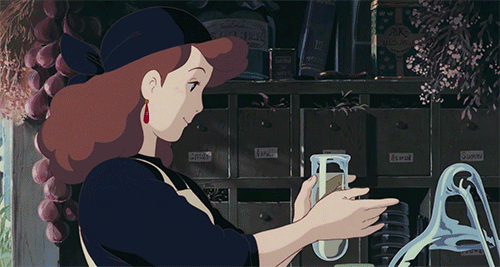
What Are Spell Jars?
For those who aren't aware, a spell jar is (usually) a form of spellwork in which a jar is the vessel for your magic. Spell jars are generally used for protection, but many people also use them for hexing and baneful magic. They're very beginner friendly forms of witchcraft, and as such a lot of new witches tend to gravitate towards them.
History of Burying
The idea of burying spell jars, generally tends to come from the concept of a "witch's bottle". This was a form of protection magic made in older times, with its purpose being to protect against negative energy. Not all of these bottles were buried, but it was commonly done to conceal magic from others (typically under a doorstep or within a fireplace).
This became especially prevalent during the 1600s when practicing witchcraft was dangerous.
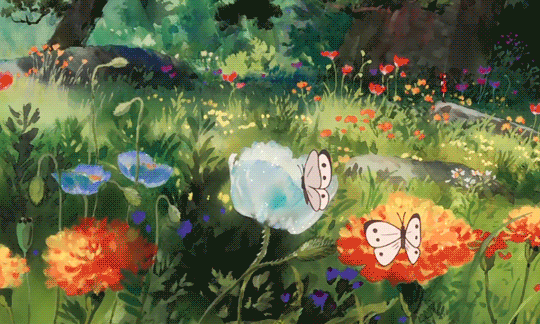
Why Shouldn't We Bury?
To get the most obvious point out of the way, burying spell jars is adding to pollution of the environment. It's litter, and shouldn't be seen as any other way. Spell jars don't grow in the environment, and it doesn't belong there. The witchcraft community is one that tends to honor nature, so this practice sticks out like a sore thumb.
Another common practice I've seen within the community is burying baneful spell jars in spaces such as graveyards. This is disrespectful to those who reside in them; the dead don't deserve to be surrounded by that sort of negative energy.
Rivers or bodies of water are also common places for people to put their spell jars and other remnants. This also shouldn't be taking place. Creatures living in these bodies of waters can be harmed by this littering.
Glass or paraffin wax are not biodegradable, flowers from the grocery store can be laced with pesticides, microplastics can be found in salt and synthetic vinegar can impact the ph of soil.
Alternatives
Use biodegradable vessels such as bell peppers
Use ingredients that are safe for the environment
Put remnants into compost bins
Display your spell jars on shelves, and hide baneful jars in dark places
There we go! Hopefully this post has been helpful for how we can be better witches for a better earth <3

#witchcraft#spell jar#witch#green witch#kitchen witch#hearth witch#pagan#paganism#elder witch advice
107 notes
·
View notes
Text
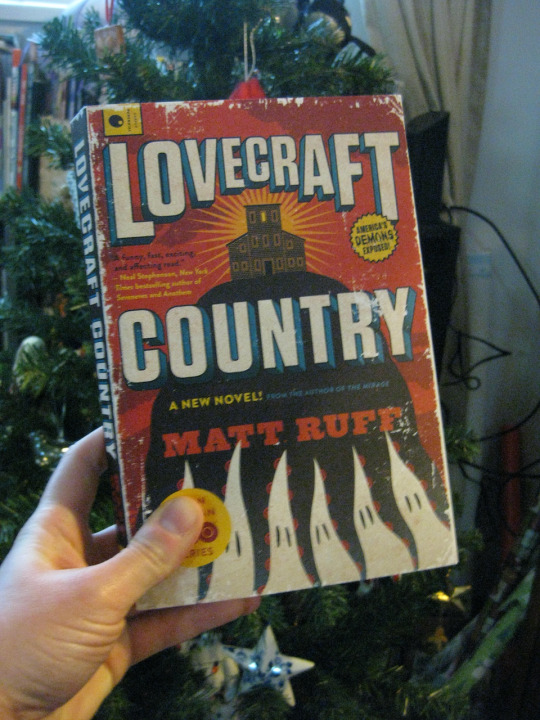
This month's last-minute review is brought to you by something of a reading slump. I've read a fair number of good books this month, if you look at the ratings I've given them, but no books that I've gotten excited about, that I've felt were unexpectedly good enough that I had to talk about it.
Until now.
Lovecraft Country was my first Matt Ruff, and it's not going to be the last. It's well-written, with strong characters and good humour, and a really interesting structure. It's a smart book, and feels very grounded and real. Is it an astounding book? No, but it does its thing very well and I enjoyed reading it more than I thought I would.
Let's start with the structure, because that's one of the things that impressed me most. It's a novel-of-stories, with each chapter being a different character on their own adventure, but there's still a narrative arc for the book, clues the characters gather and the readers pick up on, and nastiness that builds and builds until the final showdown. It's a tough structure to pull off, but Ruff's done it.
I also liked that the structure lent itself very well to a sort of puzzle-box story. You get all these clues and hints about what's truly going on, even if you don't realize that till later, and even though you kind of know where the book is going, watching everything slowly slot into place and trying to put everything together before the characters do is a good part of the fun. It's a lot like watching good SFnal TV, which Ruff's author's note says this was meant to be; you get invested in the characters and the individual "episodes", but there's meaning in that key, that comic book, that thing in the forest. Surely there must be, but how?
And the characters! I loved all the point-of-view characters—they're smart, opinionated, complicated, aware of the forces acting against them and doing what they can to avoid them. I was scared for them, I wanted them to succeed, all that good stuff. The white people are also believably drawn, in that they're self-important, greedy, and used to power, but also, when the story allows for us to see it, sympathetic and complicated all the same.
It's hard to say whether this is science fiction or fantasy, but it's definitely in that wheelhouse rather than being a straight-up historical novel. There are ghosts and monsters and grimoires and secret dimensions and a lot of other stuff you might expect to find in a book that's influenced by pulp fiction and early sci-fi and horror. But, as with a lot of genre work that tackles such things these days, Ruff has fun with this stuff while also adding a social twist to them. In this case, having a Black cast allows Ruff to illuminate and comment on the racism inherit to the 1950s. There's humour to it, but in a way that helps the points hit home.
And that brings me to the last thing I need to mention: that this is a book about Black people written by a white man. It's also written primarily for white people, as far as I can tell, because while the characters take redlining and sundown towns for granted, Ruff doesn't assume that his readers will even know what those are or, if they do, be aware how they actually impact people. However, Ruff's also done his research and tackled the subject thoughtfully. The characters don't conform to stereotypes but are definitely informed by their pasts. The stuff they face goes beyond the usual talking points of Black History For White People; there's mention of boycotts of racist businesses, the Tulsa race massacre, the intricacies of buying real estate while Black, the difficulties of loving science fiction when everyone who writes it hates you. And of course he acknowledges that dealing with racist BS on a daily basis and constantly being underestimated puts you at an advantage when there's some really massive BS going down. I thought Ruff handled it all very well, without being heavy-handed or going into anything that he couldn't do justice. (Well, maybe Ruby's story. I need to think about that one more.)
So yeah, I was surprised by this book on a few fronts, and I enjoyed it more than I thought I would. The humour and love of SF tropes, balanced with the antiracism and social commentary, was right up my alley, and the way Ruff told the story was the cherry on top. Like I said, it's not an amazing book—it might have pushed the boundaries of speculative fiction when it came out but it certainly doesn't now—but it entertains and enlightens and does so cleverly. This won't be my last Matt Ruff, like I said above, but I'm also not likely to pick up another one for a while. Maybe in a year or two when I get a hankering for the sort of stuff he does.
#book reviews#booklr#bookblr#speculative fiction#adult booklr#book photography#read in 2023#Lovecraft Country#Matt Ruff#book recommendations#my photos
24 notes
·
View notes
Text

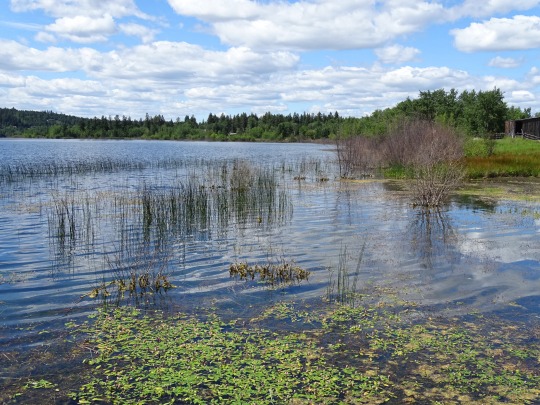
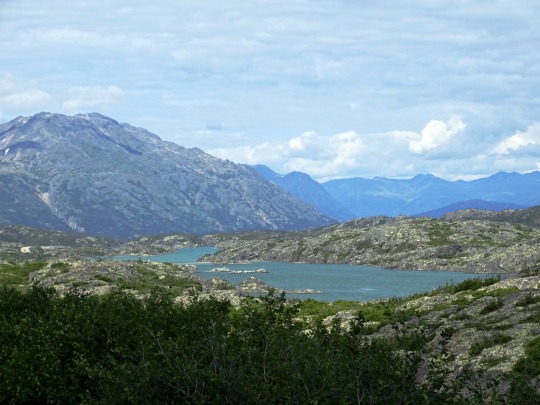
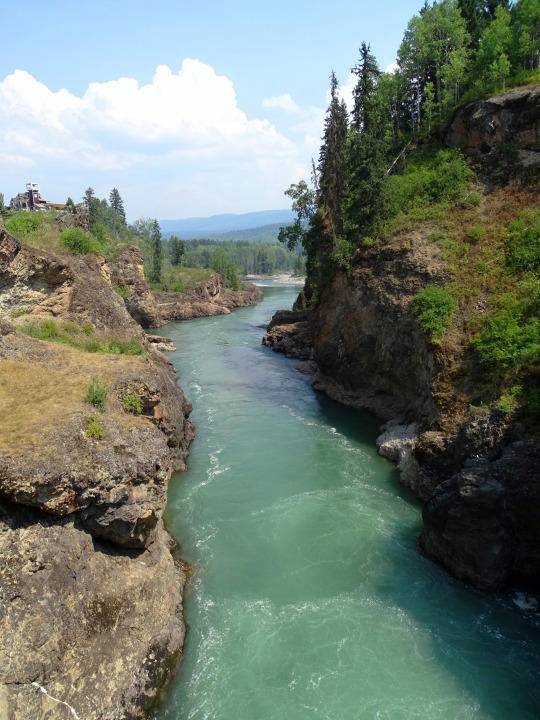

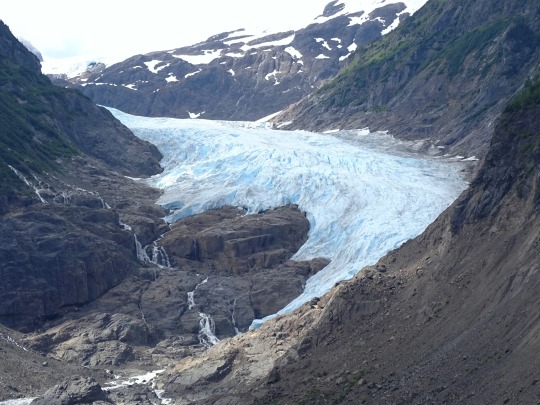

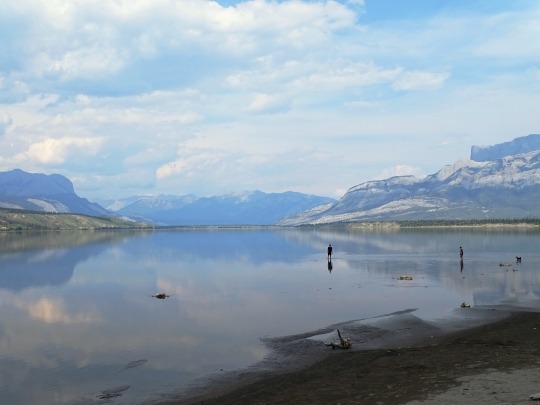
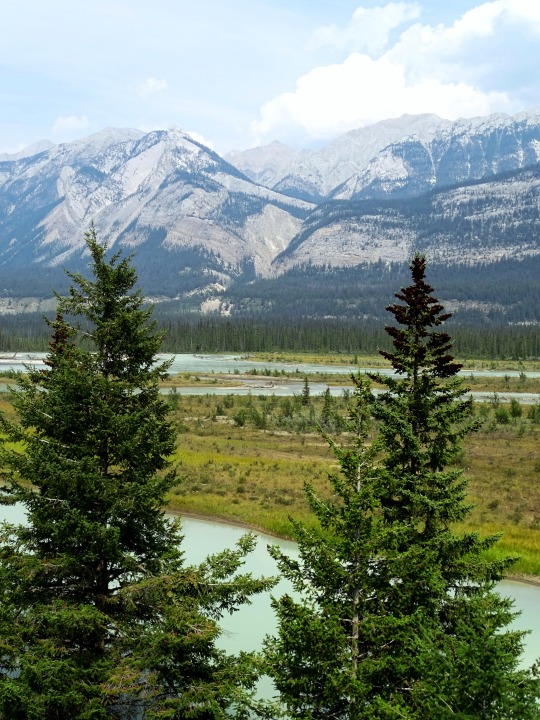

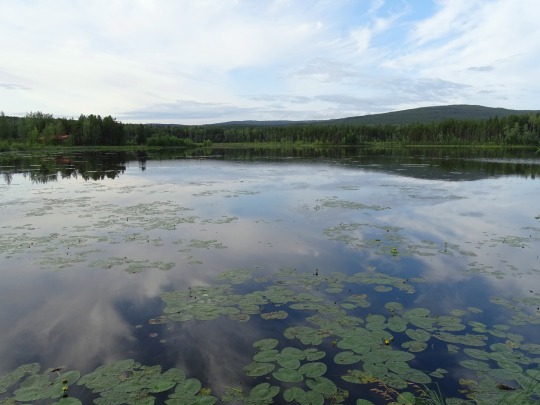
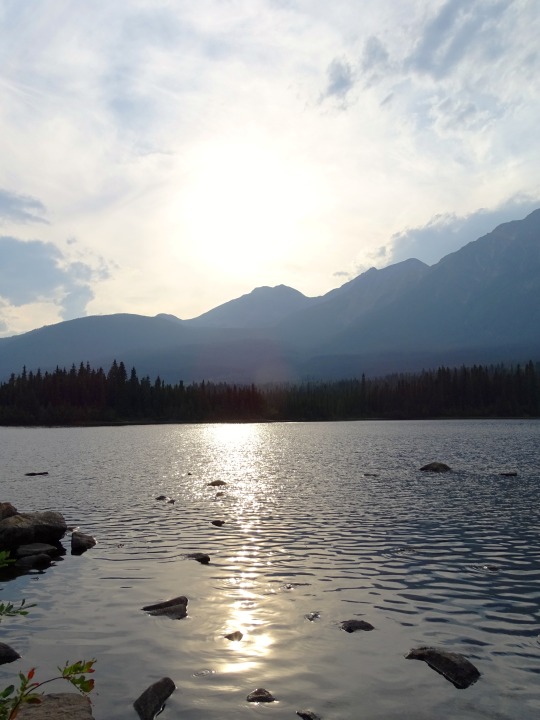



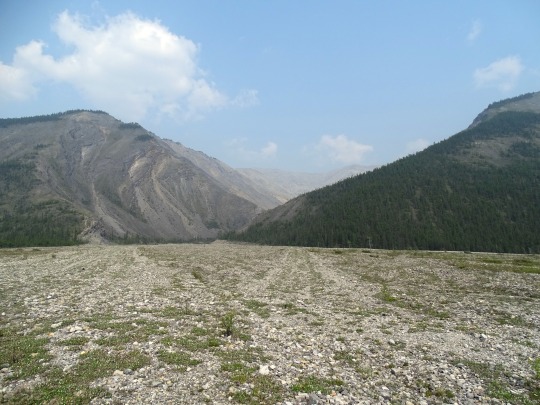

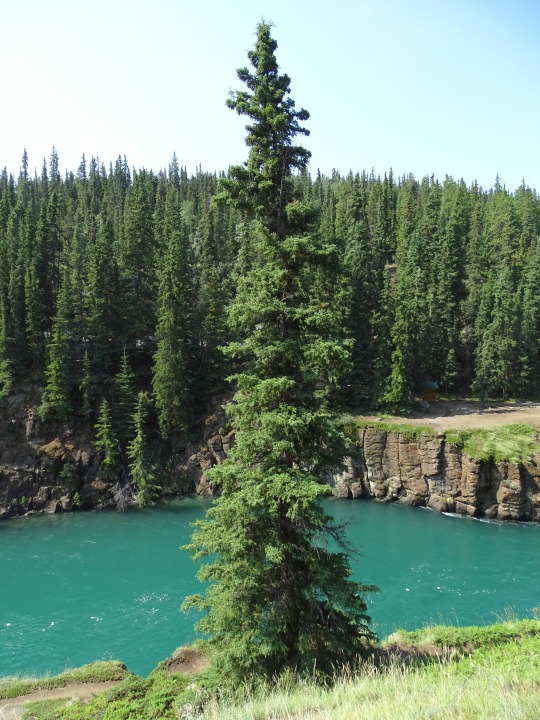
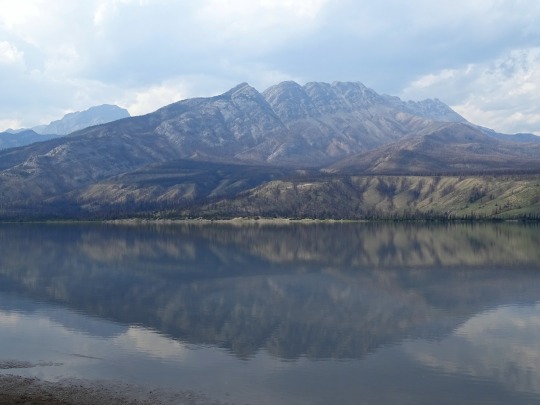

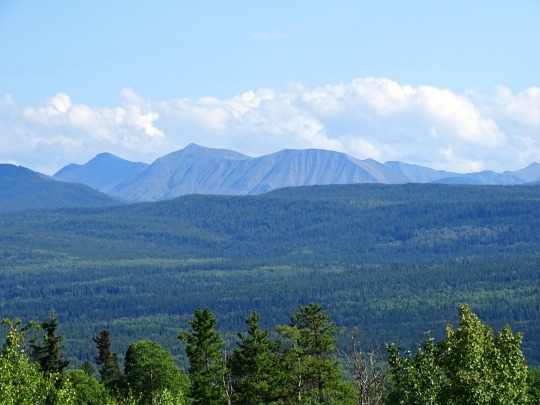
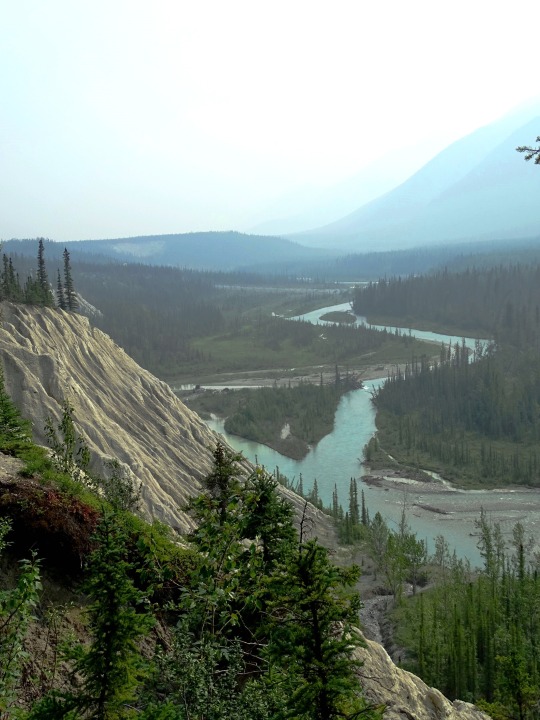
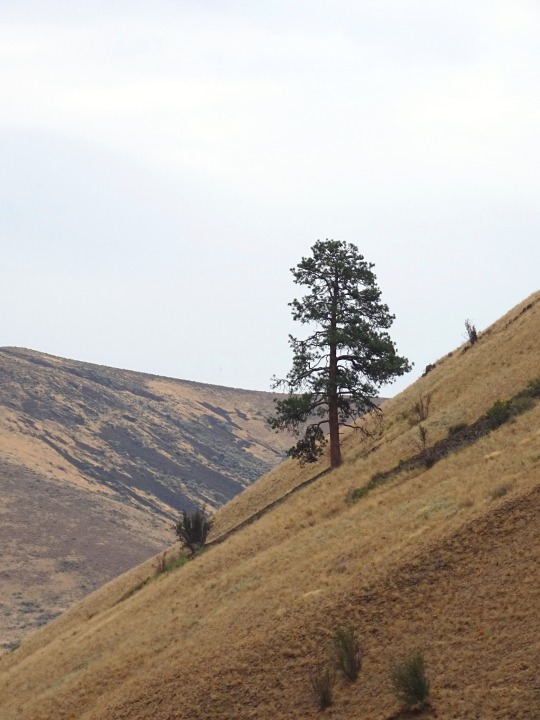
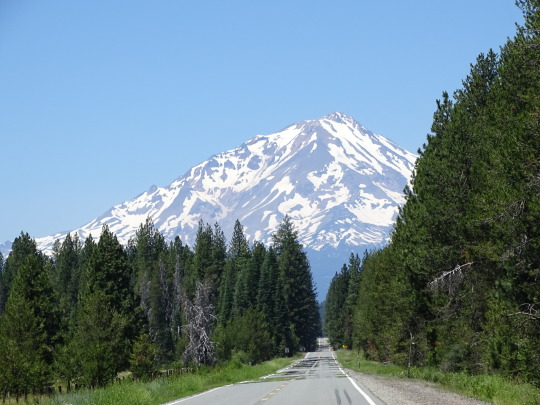
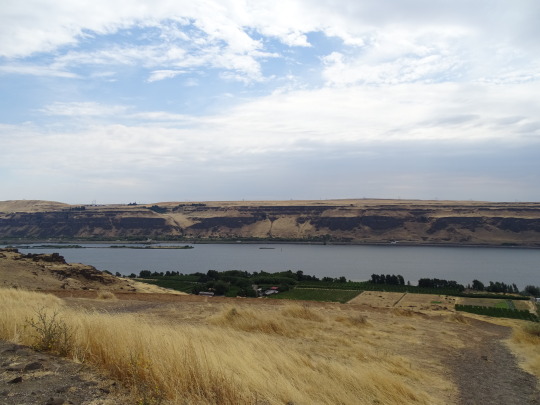
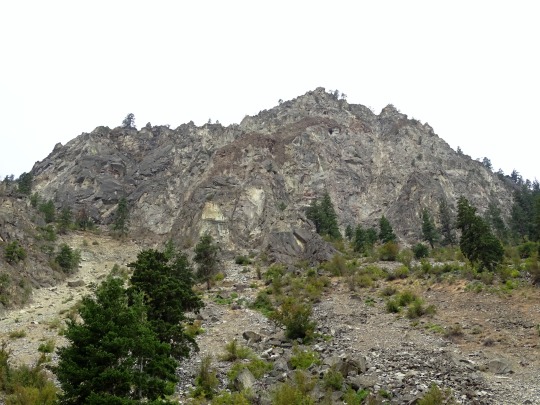

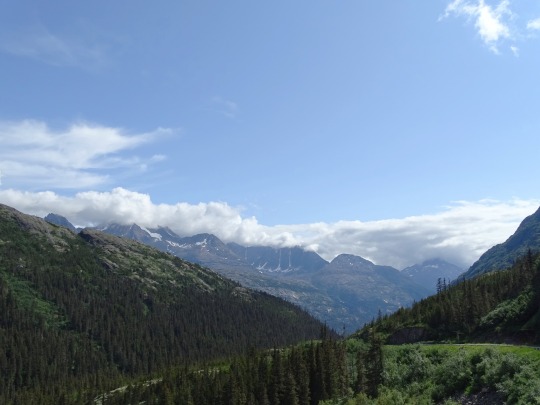
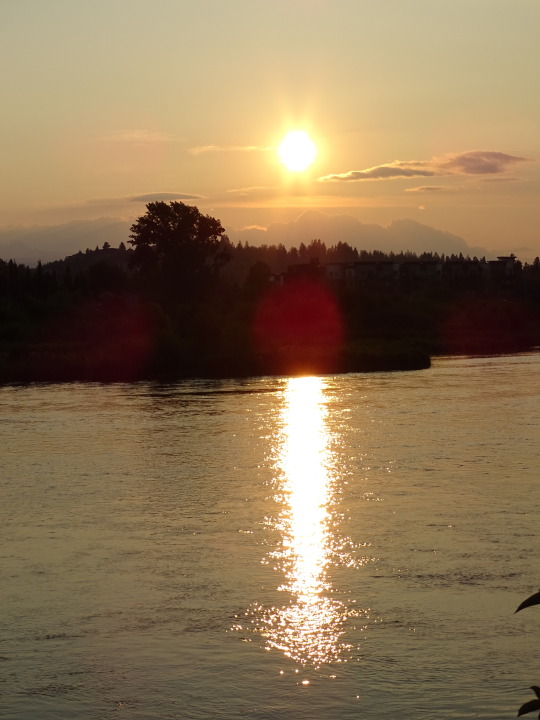
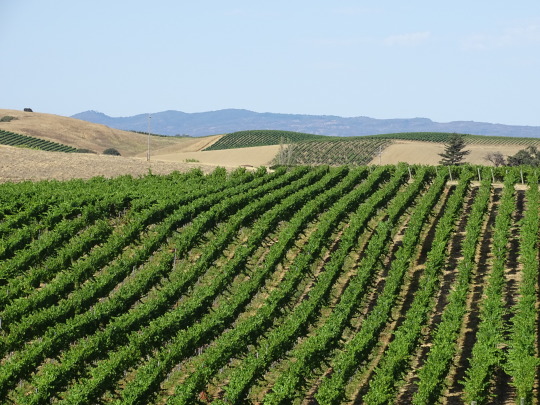
Earth Day
As threats to the Earth grow, so too do the global initiatives that seek to preserve it, whether through volunteer work, donations, or political lobbying.
Earth, due to human activity, is in trouble. The ozone layer is depleting, ecosystems are being lost and people are starving and dying of dehydration. Endangered species are disappearing rapidly, our water and air is becoming increasingly polluted, and weather systems are being pushed to the extreme.
A scary picture indeed, but thankfully one we can all do something about! Earth Day, one of the first global initiatives to protect and conserve the earth, has become an annual event that strives for positive change on a global scale. It aims to inspire individuals, communities, businesses and governments all over the world to take action and help preserve the planet.
History of Earth Day
As the world’s largest environmental movement and the most widely celebrated secular occasion, with over 1 billion people and more than 75,000 partners involved each year across almost 200 countries, Earth Day has gone from strength to strength over the course of its history.
Founder Gaylord Nelson, a former US senator, thought of the idea after witnessing the 1969 oil spill in Santa Barbara, California. Inspired by the vigor of the student anti-war movement, he believed it was essential that energy was shifted to concerns about air and water pollution.
Originally envisioned as a campus teach-in event, Senator Nelson enlisted youth activist Denis Hayes to help organize the first Earth Day in 1970, and the pair opted for 22 April due to where it fell in the academic year, ensuring that the maximum number of students would be able to take part.
Nelson, Hayes and their team were able to spread the message far and wide, including to the national media, and promote events across the US. The occasion was a massive success, with 20 million Americans taking to the streets to celebrate the first Earth Day. They demonstrated in support of the cause, and groups that had previously been rallying around environmental issues separately came together on the day due to their shared values.
The first Earth Day helped put environmental protection on the political agenda and bring about change. That same year the United States Environmental Protection Agency was set up, and soon after various legislation was passed, including the Clean Air, Clean Water and Endangered Species Acts.
It wasn’t until 1990 that Earth Day went global, spreading the message to 200 million people in over 140 countries. By the millennium it had reached more than 180 countries and involved hundreds of millions of participants worldwide. And of course the year 2020 marked the 50th anniversary of Earth Day.
2016’s Earth Day was a particularly special year, as it heralded the United Nations’ adoption of the Paris Agreement. Signed by 175 countries, this international treaty established legally binding targets for tackling the climate emergency, ensuring that as many nations as possible are working together to cut emissions and prevent global warming.
As a day of action, Earth Day aims to promote environmentalism through engagement, activism, education, policy changes and peaceful protest. It has focused on various themes over the years, such as climate change, trees, clean water and a healthy environment for children, and multiple organizations and venues host events that showcase the importance of caring for the environment.
This vital day teaches people about the consequences of their behavior on the places and ecosystems in which they live. And it’s not just about the damaging effects on the environment itself, but also about the impact on people’s health, access to food and water, safety and livelihoods. To get involved, people choose to make conscientious changes such as recycling more, using renewable fuel and conserving water.
Earth Day Timeline
1962
Rachel Carlson releases book Silent Spring
Raising public awareness for the plight of living organisms, Silent Spring makes its way up the New York Times bestseller list and sells more than ½ million copies in at least 24 countries.
1970
First Earth Day is celebrated
After witnessing a massive oil spill in California, Senator Gaylord Nelson from Wisconsin announces the idea of a teach-in on college campuses, choosing April 22 to fall between spring break and final exams to gain as much participation as possible. This bi-partisan event engaged 20 million Americans in working to protect the planet.
1990
Earth Day takes on the globe
Taking Earth Day around the world, just 20 years after the original event the participation increased ten-fold to include 200 million people from at least 140 countries.
1992
United Nations Earth Summit takes place
The United Nations Conference on Environment and Development (UNCED) meets in Rio de Janeiro to address issues of sustainability and provide opportunities for collaboration around the topic.
2000
Earth Day reaches record numbers
In celebration of the new millennium and the 30th anniversary of the observance, Earth Day includes 5000 environmental groups from 184 countries with activities all over the world.
How to celebrate Earth Day
There are a whole host of activities you can get involved in to mark this important occasion, not only around the globe but even in space! The Earth Day website allows people all over the world to find and share events designed to celebrate the day, from presentations and film screenings to cleanups and conservation efforts. This means that Earth Day enthusiasts can join things local to them or on the other side of the planet! And NASA often hosts an event from the International Space Station, for example livestreaming the image of our beautiful earth for all to see.
Another great way to celebrate Earth Day is by learning about what your actions do to the environment and why maintaining the earth’s ecosystems is vital to our survival. There’s a myriad of online resources – articles, quizzes, documentaries and so much more – to help us all find out more about our precious planet and the role we can play in protecting it.
If you feel able, why not donate money via Earth Day’s official website or to another environmental charity such as Greenpeace, the Rainforest Alliance or the Union of Concerned Scientists? Your support will help with a whole range of campaigns and projects, including pushing governments and businesses towards more environmentally friendly policies, preventing damaging practices such as deforestation and mining for fossil fuels and protecting those communities most vulnerable to the effects of climate change. You could also volunteer for local environmental groups and really make a difference where you live.
Above all, this occasion shouldn’t just be about one day, but rather a regular habit! Even the simplest of changes to our lifestyle can make a real difference. Switch to using an eco-friendly search engine, buy fruit and veg from the shop that isn’t wrapped in plastic, and put on an extra jumper rather than turning on the heating.
If you’re serious about the planet, then there’s plenty more you can do to live in a greener, more sustainable way, including powering your home with renewable energy, cycling and walking more and driving less (or buying an electric vehicle), reducing your meat and seafood consumption, recycling your waste, planting wildflowers in your garden for the bees and butterflies, and ensuring that your financial investments, for example, your pension fund, are contributing to green jobs and a green economy. Be sure to spread the word about National Earth Day through social media and let your friends and family know why protecting the earth is essential to you.
Earth Day FAQs
Is Earth Day international?
Yes! Although it is called Earth Day and it began in the US, the day is now celebrated and observed in a majority of the countries throughout the world–at least 193 countries.
How is Earth Day celebrated?
Individuals, groups, organizations and communities can all celebrate Earth Day by raising awareness, participating in sustainability projects, volunteering, making donations and so much more.
Is Earth Day always on April 22?
Yes! Ever since its inception in 1970, Earth Day has been celebrated annually on April 22. The original idea to reach college students made this the perfect time between spring break and finals.
Who created Earth Day?
Although the stage was set at the 1969 UNESCO Conference in San Francisco, the execution of the day can be credited to US Senator Gaylord Nelson who proposed an environmentally focused day for college campuses. The idea grew from there.
Where did Earth Day start?
The first ideas for Earth Day were formulated in the United States and meant to be observed as “teach-ins” on college campuses, but the idea quickly grew and it eventually turned into an international day including most of the countries on the planet.
Source
#travel#vacation#tourist attraction#landmark#InternationalMotherEarthDay#EarthDay#Earth Day#22 April#original photography#cityscape#landscape#countryside#Rocky Mountains#Alberta's Rockies#Northern Rockies#Canada#Alberta#Yukon#British Columbia#Oregon#Washington#California#USA#summer 2023#Jasper National Park#nature#flora
15 notes
·
View notes
Photo



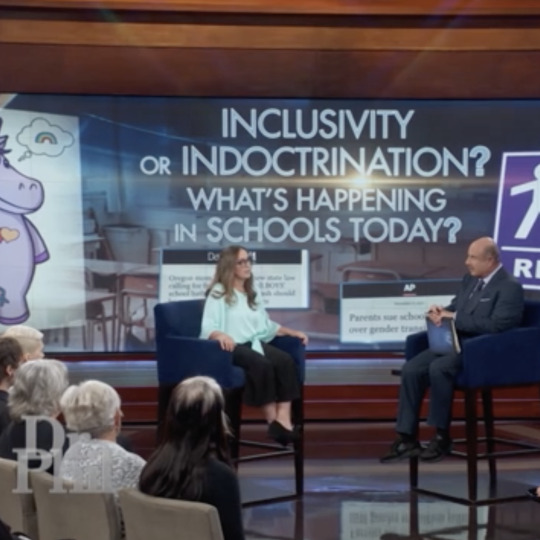

I (rather reluctantly) spoke on a Dr. Phil expert panel about schools outing trans students to parents, something that personally happened to me in 2003 with serious consequences. It’s an important topic that affects many of us, warranting more conversation.
Outing students simply isn't okay. I'm not happy with Dr. Phil platforming disingenuous cis parents that support outing students. However, I found it too important to not discuss the increased risks of mental health issues, houselessness, and abandonment that come with outing. When 40% of unhoused young people are queer and trans, we have to talk about that.
Why I decided to speak on the most popular daytime talk show isn’t complicated. I grew up in a rural town. I know the impact talk shows have on public perception of trans people (for better or worse). No trans person is “above” speaking to talk show viewers. It's purely pragmatic
I'm well aware of Dr Phil’s (ahem) history with guests. I’m also aware that I could make the reactionary panelists look ridiculous. The fight against trans children is hypocrisy at its finest. They claim to protect kids, while at the same time obviously subjecting them to harm.
If you decide to do talk shows, ask for rules in your contract like knowing who you’re speaking with beforehand. Make an informed decision based on the arguments/claims that may come up. See how much pressure you can exert to shift the discussion before it even happens.
The first episode airs today and the next will happen later this month. Keep an eye out and let me know what you think.
227 notes
·
View notes
Note
Literally a genuine question no ill intent
What do you like about Aira? As much as people are absolutely adamant Akira is projecting (I really don't think he is (I'm not saying Akira is innocent) I just think he's trying to address the prejudiced thoughts the average Japanese person will have on the Ainu) Aira's weird comments and behaviour to Hiiro have been there since day one. And I also think Aira being the one who says all this is because he's supposed to reflect the fans and the average Japanese fan probably isn't that educated on the Ainu + there can be a good few racist enstars fans...
I'm not trying to sound heated about this I'm just coming from a genuine place, what appeal is there in Aira?
Also, as much as the Aira fans are talking about blaming Akira, I feel like there should absolutely be a focus on Hiiro right now considering that comment was... yknow said to him. I just think we should actually be talking about the Amagis considering that comment was intended to discuss the Amagis and their culture and the discrimination they go through.
i had someone ask me a similar question once but not in the context of all thats happening currently so you can read that here if youre inclined
buuuut what made me like aira so much in the first place was honestly that his concept as a character is really funny. i made a post a long while back that went into the funny meta jokes that you could make using aira as a character before i really knew much about enstars at all. having a character in your idol series that loves idols and canonically reads fanfic about them is just a funny concept in general. and as i continued to read more he continued to be funny and annoying and endearing (his little mini interaction with midori comes to mind immediately. there is something wrong with him)
also i tend to gravitate towards characters that give me like. little sibling energy. i love having a favorite little guy to dote on
but afterwards what really drew me to him was the main story!! thermometry specifically comes to mind (ouuugh,,,,). his feature scout stories are also great and so is feather touch! i wont like. go into detail really cause my blog is covered in me talking about aira already
his dynamic with hiiro is one of my favorites too, especially in mainstory. their dynamic isnt JUST aira says shitty things to hiiro and thats it. their relationship develops really far to the point where aira admits that he needs hiiro as much as hiiro needs him. they're young and inexperienced and kind of codependent as they're trying to keep themselves from going under in a sort of cutthroat industry. i think thats really neat. their relationship is really sweet to me and aira is a great tsundere type of character. he regularly is shown to actually like hiiro a lot as mean as he can be to him sometimes i.e. here. and you know the whole holding hands thing (which they also fucked up in the climax story but Whatever)
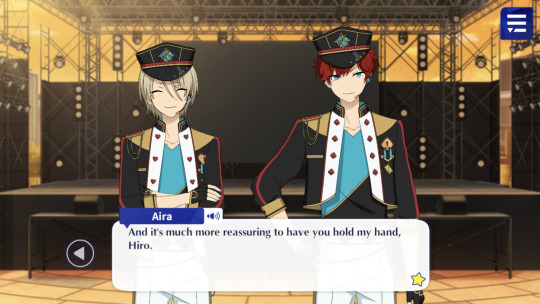
theres also this. which i think about regularly. the hiiai shipping fuel is vast
and additionally i think aira has some really great relationships with other characters too, alkaloid especially. feather touch develops his relationship with tatsumi a lot and its one of my favorite aira moments. i couldnt find my screenshots for this one but basically aira gives tatsumi his unlocked phone (something VERY important to aira since hes a little screenager) and it shows tatsumi just how much aira trusts him and he realizes how important aira is as a friend to him. being someone with a history like him aira's friendship is sort of new to him and it helps them both grow
he loves his friends so so much and he’s had a positive impact on all of alkaloid. he is its heart after all
but in any case i'm not going to like, defend myself for liking aira. i am aware that the shitty stuff has been there from the start but i've said something similar in the past that was like. aira isn't real and he cannot take accountability for what he says. he's a character written by real people who doesn't have any control over how he acts. so i guess that's why when i think the writers write something i dont think he would do or say in my own personal aira opinion i can sort of brush it off as just bad writing.
and not in the sense that i dont recognize that enstars sucks, because it does. enstars can be terribly racist sometimes and not just when concerning aira, and thats important to talk about (i.e. the orient cards, the king of thieves cards, etc). but at the end of the day the most important thing to recognize is the people and company behind the game as well as the real people who play the game and are affected by it. and not like, the specific characters in the game. cause they didn't actually do anything or feel anything you know
#cryn answers#anon#enstars#media analysis#im a miraculous ladybug fan im used to pretending that the thing i like is better than it actually is lmfao#was including sources for what im saying too much??#anyway i didnt even touch on airas own experiences with racial discrimination#i dont think its written perfectly so thats why i didnt talk about it but its an important aspect of his character too#and an important part in his place in alkaloid#also i hope i dont come off as rude or upset in this anon#i appreciate you being respectful#but also im a little tired of talking about this ill admit it#i enjoyed rambling about aira again im just like :( that its cause of all the discourse and whatever happening right now#blegh#i think its kind of like. i mean if you only hear little tidbits of what a character is like through twitter screenshots#youre not gonna have a full picture#and i think thats how it is for a lot of enstarries with aira#and thats not a jab at anyone i dont know jackshit about like. mama or undead or fine or akatsuki. and thats fine#theres too many characters for me to know everything about everyone#but with aira specifically his only character trait to the people who dont produce alkaloid is 'the racist one'#and that sucks#but anyways. thats all i have in me for now
18 notes
·
View notes
Text
Other Events During Solarpunk Aesthetic Week (Winter Solstice Edition)
As you can imagine, there's a good deal of events happening during Solarpunk Aesthetic Week this season! We wanted to highlight just a few other things that are happening, so they can maybe inspire some of what you do for Solarpunk Aesthetic Week!
Arabic Language Day is on December 18th, and aims to promote and recognize the importance of the Arabic language, encouraging linguistic and cultural diversity and foster understanding. There's often conferences, workshops, and cultural performances held on this day.
It's important we consider the important role and contributions of Arabic people on history and the world, as well as the present and future of Solarpunk! It may also be a good day to jumpstart a new language learning adventure, if you want!
International Migrants Day is also on December 18th! It's a day that seeks to promote the well-being and rights of migrants worldwide, dedicated to recognizing the contributions and achievements of migrants and raising awareness about the need to improve conditions, safety measures, and social acceptance for migrant individuals and families.
Many of us like to imagine solarpunk societies as being entirely or semi-nomadic, traveling to different places depending on the seasons. But an important part of living solarpunk is supporting people right now. How can we support migrants in our communities and improve relations between Indigenous communities and immigrants in a solarpunk future? How would a solarpunk future welcome migrants while protecting and supporting indigenous communities and land? How does the reality of climate refugees in particular impact the development and ideals of a solarpunk future? How would a solarpunk society migrate across the land, and what would it look like?
International Human Solidarity Day is on December 20th, and serves as a reminder to the importance of unity in diversity and the need to work together to address global challenges. There may be various events and activities to mark this event.
Solidarity is an important tenant of Solarpunk, and of activism in general. Consider ways you can show solidarity through art, writing, music, or more. A story about people working together towards a common goal, of supporting one another in the face of a difficult obstacle? An illustration to support a current cause, or of a distant future's fight? Can you do a craft to show solidarity with others?
Winter Solstice is on December 21st in the Northern Hemisphere! It's the astronomical start of the winter season, and symbolizes the death and subsequent rebirth of the sun--the shortest day and longest night of the year.
Often when visualizing Solarpunk, we think of lots of plants and greenery on a bright sunny day. But this isn't what Solarpunk would look like everywhere, or all the time in most places. Let's visualize what we think Solarpunk would look like in fall and winter! How do you solarpunk in the colder months, what kind of crafts do you pick up when things get chilly? What do you imagine a solarpunk society's infrastructure and fashion would look like when the temperatures dip low? What would change and how when our current society is reborn into a more solarpunk one?
Summer Solstice is also December 21st in the Southern Hemisphere, marking the official beginning of the summer season! This is the zenith of the sun's position in the sky, and the longest day of the year.
While things are getting cold for some of us, the temps are just ramping up for others! Let the sun and its energy inspire your works, imbue yourself with the bright and blazing energy of our brightest star!
December 24th is Christmas Eve for those who celebrate! Many people celebrate by gathering with friends and family to enjoy feasts, exchange gifts, and generally enjoy time together.
In a consumerist society, there's a lot of emphasis placed on the gift-giving part of Christmas celebrations--how would it look in a Solarpunk society focused on community building instead? Are you doing anything Solarpunky this Christmas? Let us know!
Is there more we're forgetting? Want to share the way you celebrate a particular event? Sound off and let us know--we'd love to hear about other related events and how you're taking part!
15 notes
·
View notes
Text
To learn from the past is to better the future...
This week we were tasked to pull apart and inspect the following quote:
There is no peculiar merit in ancient things, but there is merit in integrity, and integrity entails the keeping together of the parts of any whole, and if these parts are scattered throughout time, then the maintenance of integrity entails a knowledge, a memory, of ancient things. …. To think, feel or act as though the past is done with, is equivalent to believing that a railway station through which our train has just passed, only existed for as long as our train was in it.
(Edward Hyams, Chapter 7, The Gifts of Interpretation)
To start, it makes sense that there is no particular worth in old things like artifacts, however there is worth in integrity, and integrity means keeping together the parts of a whole. This means that in order to maintain the integrity of a historical event, we need to maintain those ancient things that make it what it is. In order to maintain the integrity of the whole, you have to remember why it was ever important in the first place, and that is what makes it important to give merit to the ancient things that make up a whole. In the sciences, we learn about system thinking, and that the whole is merely the sum of its parts. In order to properly remember and interpret history, you have maintain the integrity of all the little things that make that historical event important.
To say that “the past is in the past” is to say that moments are only significant or important if they happen directly to you, and that there is no merit in remembering history, as we weren’t there and therefore it has nothing to do with us. In reality, interpreting history helps us understand ourselves, where we have been and what makes us who we are (Beck and Cable, 2018). History allows us to find inspiration in the stories of creators, leaders and survivors. Interpreting the past gives us the opportunity to learn from others’ mistakes and successes, and create a better future using that knowledge.
One of the most important lessons I took from this week’s content is that we need to always consider when interpreting history is to make sure we are doing so accurately and respectfully. The lessons we can learn from the past can be powerful, and it’s important that we’re portraying the past in the way the story was meant to be told, and avoid bias or personal attachments.
Beck and Cable (2018) said that “every natural site has a history and every historical site has natural resources.” I thought this quote connected this week’s content with past content. Although we have been focused so far mainly on how to interpret nature to others, history and nature have always been intertwined, and it is important as an interpreter to be comfortable with both. Tied into this concept (and every concept) is the impact of privilege that we talked about a few weeks ago. In Canada, it is always important to be aware and mindful that the nature and history that we are interpreting has been skewed by colonialism. One of the most respectful things we can do as interpreters is ensure that the stories we are telling about the history of the land reflects the actual truth.
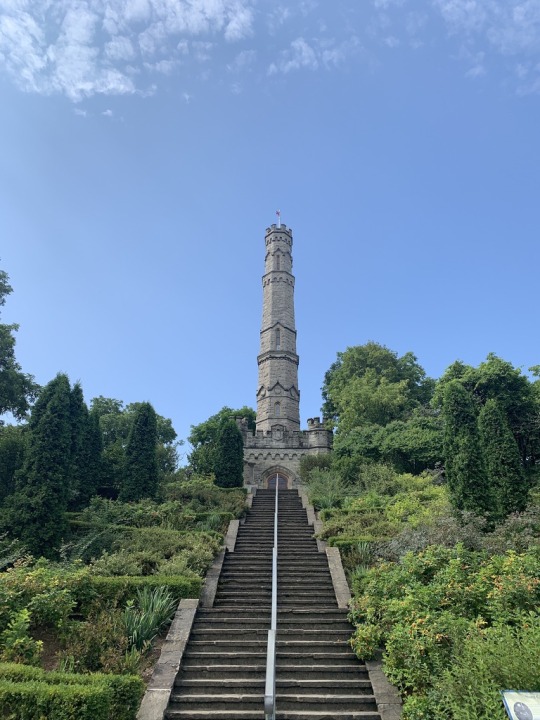
Besides first-person and third-person interpretation (Beck and Cable, 2018) I think that writing is one of the most common types of interpretation of history (and nature) that we see in the world. All over museums and archives, natural parks and conservation areas, the written word can be found interpreting what you are looking at. Interpreting through the written word makes it possible for there to be an absence of a live interpreter while at the same time forcing a person to pause and interact with the item or place, as well as capture someone’s attention, so that they might learn something new (Hooykaas, 2024). Writing plays an important role in the interpretation of both nature and history, and is also something that helps keep memories alive.
What’s one way you have (or someone you know, or somewhere you’ve been) used writing as a way to interpret nature or history?
One way I interpret through writing is to write down important memories I’ve had (both good and bad) and that way I can go back and reminisce or pull guidance from an experience I’ve lived through :)
- All for now!
Beck, L., Cable, T. T., & Knudson, D. M. (2018). Interpreting cultural and natural heritage: For A Better World. SAGAMORE Publishing.
(Edward Hyams, Chapter 7, The Gifts of Interpretation)
Hooykaas, A. (2024). Unit 06: Nature Interpretation through History. [Lecture notes]. ENVS3000 Nature Interpretation. University of Guelph.
11 notes
·
View notes
Text
I am not going to speak about this on Twitter because I don't want to cause any more cracks in the veneer of the Cassiopeia fandom - but I have something to say.
I have been in this fandom for 20 years. Since the very beginning. I've seen the ups and downs. I know there are OT2 fans, OT5 fans, OT4, OT3, etc etc. Okay, fine, if we got along then no worries but damn we do not.
My god - the pure acid that the various sides spit at each other is so heartbreaking, and I can barely take it any longer.
Listen to me here -
- TVXQ was successful between 2003-2010 as a group of 5 members. Each one of those members played an important part in the equation that made them a force to be reckoned with. Of course there were members who were more famous than others, but if you took one away, that absence would be noticed and impactful.
- TVXQ split in 2009 due to reasons we are all aware of. Yunho and Changmin continued as TVXQ and then were also successful on their own...with their own talents and merits. JYJ went on to be successful with their talent, merits. Neither side were boosted because of the other - and to say that means you discount each one of their personal competences.
- JYJ were blacklisted yet still found their way into success. TVXQ (HoMin) worked to improve themselves so they could continue with the TVXQ name and fill Nissan Stadium. Of course, they both built off the established foundation of 2003-2009 TVXQ, because that's just NORMAL and how it all works in this system. THEY BOTH BUILT OFF THE TVXQ LEGEND. BOTH.
- Both sides have expressed their nostalgia for the OT5 era. It may not be obvious from the surface, but if you dig and listen to the members words...its all there. But both sides are also immensely proud of their current success and they shouldn't be made to feel ashamed for that.
- Fans will come into Cassiopeia at various times. If they started with the duo TVXQ, then that's where they started. Don't fault them for not knowing history....we can always educate them in a kind and open way.
Final words - TVXQ as five will always be a standard we will never again see in kpop. I understand that OT5 fans want to protect that and showcase their pride at this incredible group that unfortunately ended far too early. OT2 fans have pride in the two members who took the TVXQ name after it was broken into 1,000 pieces and put it back together again. They will be passionate too. BUT CHRIST - can't we all just get along?! Aren't we all technically on the same side here?
All we all really want is appreciation and acknowledgment for the past and acceptance and success for the future. Right? We keep pushing new fans out because of how divided we all are - how intense we all come off - and all behind our own party lines.
All I can say now is that I have loved every TVXQ era, every TVXQ member, and will continue to do so. I don't care the iteration of thr group. They are my TVXQ. My group. I support them all in whatever they choose and enjoy the success they've all built together and apart.
I bleed pearl red.
Do you?
43 notes
·
View notes
Text
Notes abt Piglin Culture
Hello!! Back again with another post about Piglins and their culture!! These are all headcanons of course and while some are based off the lore in-game, some are def based off my own ideas!!
I do wanna say Piglin culture is something I like to insert my own culture into, so be aware some things might be influenced by Aztecan and Mexican culture as well as Salvadorian. Usually these won't be too impactful, but I am speaking from my own experiences. I also want to state we'll be delving into a bit of lore from Minecraft Legends!! And happy holidays and merry christmas to my fellas out there! I'll try to post more soon, I have a theory/headcanon on Drowned I wanna show off here!!
this is a long post so yeah :0)
Firstly,
I wanted to touch one some small notes about the jobs Piglin culture has, as well as what they do for their community. I'm certain it's very clear their people are attached very heavily to each other, all raising children together, fighting, harvesting, protecting and living as one unit. I think Bastions represent a lot of different needs their people used to have in the days of old, namely the time of Minecraft Legends. The 4 Piglin leaders put into place their values into the Bastion structures. The Unbreakable implemented the Bastion system in the first place!! They were the one who first had the idea of Treasure Bastions, as a way to keep their history and treasures secure no matter what would happen. The Devourer designed the Housing Units, The Beast created the Hoglin Stables, and lastly, The Great Hog developed the Bridge Units. With these different units, different Piglins are required to choose a job and serve their community once they reach the age of 20. These jobs are Protectors, Nether-Roaming, and Bastion Dwellers.
Bastion-Dwelling piglins are ones that work preparing food, creating bricks for repairs, making beds and linen from stem trees, and creating music and clothes. They also take care of the elderly and children, usually are very social and polite. This job is usually for Piglins who aren't able to fight/don't know how, have disabilities that might make constant movement difficult, have children, or are generally more interested in this kind of work. It is slightly lighter work,though it is constant and takes a lot of effort to complete. (this is what Briar worked as due to his overgrown tail and ears as well as his physical hypo sensitivity due to his autism, also hes good with medicine lol)
Nether-Roaming works as scavengers, collecting bones, quartz, gold, blackstone and netherrack. As well as raiding any older chests around Ruined Portals and abandoned Bastions/Fortresses.
Next are hunters who will kill magma cubes for medicines and potions as well as hoglins for meat and hides. Another job is Messagers. They will also communicate between Bastions, sending
messages and pushing to form alliances.
Lastly are Protectors! Protectors are trained from a very young age (15 or so) to be ready for this kind of work. Protectors train in combat and mental fortitude especially. They are given a strict amount of rules to live by and support, are taught to not fear zombification and zombies. Protectors are needed to protect and secure any and all treasures inside of Bastions as well as all the Piglins who live inside of it!!
Another thing i wanted to mention briefly is the importance of gold and how its used to show a kinship within their culture.
Piglins usually have at least 2-4 different piercings on their body. Most keep to 2 piercings though. The most common are nose and ear piercings, as they're the easiest to care for. But!! It is normal to have them in a variety of other places and to have multiple in the same place!! (Dagger has two gauges in both ears.) Tail, nipple, belly button, eyebrows, lip and a variety of eyebrow n mouth related piercings.
Piercings are done by heating a quartz rod and poking it into the cartilage around where the piercing is meant to be placed.
after the incision is done, a golden hoop, clip or small stud is placed within it. It is left to heal and is cleaned consistently
with a mixture of water and magma cream. The piercing is always entirely golden and is always kept for the rest of their lives.
One piercing is done when the piglet is born, and another when they are an adult (20). The more piercings a Piglin has, the more revered and attractive they are seen as!! In general though, height, strength and overall size are attractive traits among piglins, as well as curlier/patterned hair/fur! (yes this means canonically Dagger is attractive but i think it's funnier that Briar is very much unattractive)
I also want to say i believe Piglins have a dormant winter gene in their DNA, back when their ancestors lived in a frozen tundra or the prehistoric Nether. (yes this is an idea presented by MatPat, but also its common sense with irl geography and history) This gene only comes up with Piglins who have moved to the Overworld.
Lastly, I will talk about how Piglins are perceived in the Overworld. The legend presented in Minecraft Legends is very much what V/Illager folk believe about the Piglin race. Brutish, disgusting, unappealing and violent. They usually look down on them and have no intentions of going to the Nether to actually see if these things are true. V/Illagers despise Piglins usually, though some don't see them as a threat as these prejudices spawn from old stories. Even so, the disdain is seen in how Villagers have their Iron Golems attack Piglins on sight. In the current story, most V/Illagers care not for Piglins, though some are of course hesitant around them. Unfortunately, this isn't much better as there are some V/Illagers who only like Dagger n Briar n such bc they see them as 'exotic', 'feisty' and 'cutesy' so :/ but its just part of being in a new place where people misinterpret you and your culture

en ee ways im going to bed now goodnight happy holidays folks byeeee
#sorry for piglin racism mention lol#minecraft theory#minecraft#minecraft oc#minecraft oc ask blog#minecraft ask blog#minecraft piglin#mineblr#theory#minecraft lore
17 notes
·
View notes
Note
I’m sorry if this is disrespectful at all, but how did the cluster realize they were OSDDID?

Hello, Anonstar! This is a fantastic question, not disrespectful at all, no worries! Thank you so much for giving us an opportunity to talk about the Starwake System with xyr DID more! We have a post that entails general information of xyr condition here for an additional reference. While we will answer this question and cover few related topics around the Starwake System's DID, we will also be providing information with our own personal understanding and experiences with OSDDID to support certain details in the answer, as listed below:
⁰ Based on our own personal experiences and / or understanding with OSDDID.
¹ Dissociative Identity Disorder Research (n.d.). DID Basics: Presentation.
² Boyer, S. M., Caplan, J. E., & Edwards, L. K. (2022). Trauma-Related Dissociation and the Dissociative Disorders: Neglected Symptoms with Severe Public Health Consequences.
³ Dissociative Identity Disorder Research (n.d.). DID Origin: Synthesis.
⁴ Dissociative Identity Disorder Research (n.d.). DID Identity Alteration: Time Loss, Black Outs, and Co-consciousness.
⁵ Encyclopedia of Psychology (n.d.), Dissociative Barriers.

* Content warning note : This answer mentions ableism, general child abuse and distress, car accidents; deaths, mental health related denial, misdiagnoses, and general traumas; so please read with caution.

Before we answer the questions of how the main Starwakers realized they have DID and were aware of each other's existences, it's important to first know the details of how the Starwake System's Dissociative Identity Disorder was formed, as provided from the study post that was shared above, along with the " basis " of OSDDID :
The first known alter is Micah Xenowake who developed Dissociative Identity Disorder when xe was five years old. Xyr mind fragmented from two to five due to the extreme stress Micah experienced in constantly moving between multiple foster homes, with the frequent changes happening in a short amount time of xyr life while feeling like a stranger in many homes, as well as xe faced every forms of abuse and neglect in several past families. From these events for three years, xe experienced episodes of dissociation and depersonalization before xe split off Phoebus, formerly known as Lyght, during a case when xe was trapped in a dark locked basement as forced to sleep there for the first time.
OSDDID is a mental condition that exists essentially to protect the individual from continuous distress and traumas while it can give them the necessities that people in the world have failed to provide. The quote, likely from this Tumblr post : ❝ I think ultimately you become whoever would have saved you that time that no one did ❞ is one of the best ways to explain OSDDID on its essential core.
Generally, in most cases, OSDDID have a covert nature and it is difficult to recognize in a person ( DIDR, n.d. )¹. This is to avoid danger and maintain protection within the system and the main fronting individual themself from traumatic events or external factors that is a threat to the system's and / or fronter's wellbeing ( i.e. abusers )⁰. Although there are severe health consequences that impact various life aspects in the long run from self identity and wellbeing, to personal relationship and academic studies, etcetera, OSDDID is meant to save the child, having symptoms like amnesia that acts as a defence mechanism to help them lose memories of traumas and dissociation as a form of psychiatric escape from traumas they can't physically retreat from ( Boyer et al, 2022 )².
Multiple alters exist in most systems, although depending on the alter's source ( that brought them into existence via splitting ), history, and role functions, as well as the system's level of amnesiac barriers and their current living conditions, they may not be partially to fully aware of some other alters or everyone else in the system ( DIDR, n.d. )⁴. This is generally because of the dissociative barriers that exist between the alters, which are psychological barriers that obstruct an individual’s ability to access memories or emotions related to an event, usually of traumatic nature ( EOP, n.d. )⁶. The barriers may prevent one alter to be aware of another, but some alters can develop certain degree of co-consciousness, ❝ the ability for two or more alters to remain present in the body or aware of the outside world at once ❞ ( DIDR, n.d. )⁴.
| Explanation of " Co-consciousness Levels " from the Dissociative Identity Disorder Research ( n.d. ) :
❝ [ . . . ] Co-consciousness is not necessarily extended to all alters. It may be that Alters A and B are always co-conscious with each other, but only Alter A can be co-conscious with Alter C. Meanwhile, Alter D may be able to watch the other alters although the others are not aware of Alter D and their activities in return, and Alter E might not be aware of any of the other alters nor any of the other alters aware of Alter E! Finally, Alters F and G might be co-conscious with each other but have to leave post-it notes for the rest of the system in order to communicate, and Alter H might be co-conscious with Alter A only some of the time or under certain conditions while Alter I has the ability to allow or not allow others to be co-conscious with them as they choose ( para. 5 ). ❞
Even though an alter is aware of the fronting alter who doesn't know they exist, depending on the system's current living environment and circumstances, the alter may not reveal themself to the fronter for many reasons from protecting the fronter and / or system while avoiding jeopardizing them, not feeling safe and comfortable enough for their existence to be known, to not finding it necessary for them to be a direct part of the system's life while they only prioritize internally stabilizing the system.⁰ However, the fronting alter may experience " partial intrusions " without knowledge or understanding of the sources if that alter is also present ( DIDR, n.d. )⁴. OSDDID having the covert nature in general explains why most systems don't realize they have OSDDID until later in life, especially at the age of twenties to even thirties.⁰

Re : The Starwake System's DID discovery and awareness, Micah was the one who got the official diagnosis from xyr OSDDID specialist and therapist when the system in April 2023, the time when Micah and Adoniram had a car accident from an unknown cause. Micah tried to save Adoniram who was trapped in the seatbelts as their car was upside down with the oil spilled out, but before xe could get him out, Phoebus fronted, seizing full control of their body, and abandoned him to protect the system and especially xem, forcing Micah to experience a blackout before xe " woke up " on xyr hospital bed, learning that Adoniram disappeared ( but was declared dead by the officials when his body couldn't be find a few weeks of search and rescue after ).
It's important to note Astereus / the Starwake System was misdiagnosed three times : ( 1. ) Borderline Personality Disorder at age fifteen, ( 2. ) Bipolar Disorder at sixteen, ( 3. ) and eighteen with Schizophrenia while being told Dissociative Identity Disorder wasn't real. In addition, when Micah was eight, xyr amnesia and time losses from the blackouts was believed to be linked to extreme fatigue due to sleeping poorly, having insomnia. There was little information on DID nor general dissociative disorders at the time when Astereus grew up, hence, not many non-professional and professional people could understand xyr experiences nor have the knowledge to see the symptoms are based on dissociation and dissociative identity.
Micah's close friend and occasional detective partner, Daniel Darling, have OSDD-1, a partial form of DID, and after Micah shared xyr experinces of time and memory loses to him, from sharing similar experiences, he said xe could have OSDDID. For seventeen years since xyr third attempt of diagnose, Micah believed xe have Schizophrenia and xe was hesitate to seek diagnosis for the fourth time, but from Adoniram's first death that Micah have painfully failed to prevent it from happening because of the blackout, this gave Micah the push to reach out to xyr art and music therapist, Alyx, who referred xem to the OSDDID specialist and then finally, at the age of mid thirties, xyr DID therapist confirmed xe does have DID after all.
With the other main earliest known Starwakers' DID realization and awareness :
Phoebus : They have always known Micah since they were created, being co-conscious with them as Micah was in distress from being trapped in the basement that was completely dark. Because Phoebus have the main responsibilities of ensuring safety and stability within the Starwake System, they were able to keep close track of the system changes and alter creations while their co-consciousness developed further over time. From this, they were able to learn Philos' and Phobos' existences. Before, Phoebus couldn't understand how they and Micah shared the same body, but they had a strange tugging feeling akin to protectiveness with Micah that made them focus more on being with Micah rather than dwelling on the wondering of " what they are ".
Philos : In the beginning, she didn't know other alters existed until some weeks later since she came into existence, she met Phoebus in their internal world, although Philos only viewed Phoebus as an " imaginary friend ". It was when Phobos came around, Philos then came to a thought that there was " something wrong " with them, but wasn't sure how to describe this position. Philos met Phobos some time later out of curiosity, being drawn to its sharp and aggressive personality. Philos learnt Micah's existence at the same time as Phobos.
Phobos : Phobos also had no awareness of the other alters in the beginning, but at a certain point met Philos who sometimes visited it via sharing co-consciousness. Phobos thought Philos was a ghost possessing their body, but didn't make a huge deal about it when Phobos thought it was cool to have a ghost, even though it thought Philos himself was annoying to be with. Phobos learnt about Phoebus and Micah when they were a preteen, Phoebus co-fronting to stop it from retaliating one of Micah's and Adoniram's bullies who hurt them. Phobos didn't care about what they are or have to make them share a single body as long as it can have some freedom interacting with the outside world.
Ultimately, Micah was the only main Starwaker in the system who didn't have complete awareness of having other alters until xe was in mid thirties. The reasons Phoebus, Philos, and Phobos kept their existences hidden from Micah, even after a point when Micah was fully independent and free of continuous stress and danger, are that Phoebus felt as it'd be best to give Micah the most " normal and peaceful " life as possible that xe couldn't have when xe was younger, originally seeing this life they share was Micah's rather the whole system's. Phoebus was also afraid if Micah knew about their existences, xe'd shun them and learning the fact xe have DID would distress xem, which was a case as xe was in denial for a few months, having strained relationships with the others and especially Phoebus, before xe came to terms with xyr DID and everyone improved on communicating and connecting with each other since.
Although it took a very long time for the Starwake System to finally have the answer to what they'd go through from xyr DID, and the answer was overwhelming for especially Micah, they're all still most grateful they would find the time when they could understand their DID and each other more to hold a healthier and stronger system.
#ANONYMOUS#///#//#/#𓁹 ༑ ࿐ྂ ⩇⩇ : ⩇⩇ ⚠︎ [ 𝙴𝚇𝙸(𝚂)𝚃 : 𝙶𝙾𝙳 ] * ‹ ANSWERS . ›#𓁹 ༑ ࿐ྂ ⩇⩇ : ⩇⩇ ⚠︎ [ 𝙴𝚇𝙸(𝚂)𝚃 : 𝙶𝙾𝙳 ] * ‹ CANONS . ›#𓁹 ༑ ࿐ྂ ⩇⩇ : ⩇⩇ ⚠︎ [ 𝙴𝚇𝙸(𝚂)𝚃 : 𝙶𝙾𝙳 ] * ‹ STUDY . ›#𓁹 ༑ ࿐ྂ ⩇⩇ : ⩇⩇ ⚠︎ [ 𝙴𝚇𝙸(𝚂)𝚃 : 𝙶𝙾𝙳 ] * ‹ MICAH . ›#𓁹 ༑ ࿐ྂ ⩇⩇ : ⩇⩇ ⚠︎ [ 𝙴𝚇𝙸(𝚂)𝚃 : 𝙶𝙾𝙳 ] * ‹ PHOEBUS . ›#𓁹 ༑ ࿐ྂ ⩇⩇ : ⩇⩇ ⚠︎ [ 𝙴𝚇𝙸(𝚂)𝚃 : 𝙶𝙾𝙳 ] * ‹ PHILOS . ›#𓁹 ༑ ࿐ྂ ⩇⩇ : ⩇⩇ ⚠︎ [ 𝙴𝚇𝙸(𝚂)𝚃 : 𝙶𝙾𝙳 ] * ‹ PHOBOS . ›#𓁹 ༑ ࿐ྂ ⩇⩇ : ⩇⩇ ⚠︎ [ 𝙴𝚇𝙸(𝚂)𝚃 : 𝙶𝙾𝙳 ] * ‹ STARWAKE SYS . ›
7 notes
·
View notes
Text
☆ Here's why we should talk more about 'Back off' and it's impact on Kanata's character ☆

- Okay, as a certified Back Off lover you guys SHOULD appreciate it more. Not only cause the song itself is good, but also for the LYRICS. They're so important for Kanata as a character (We're making this about the blorbo again❤️). As you all know by now, Cozmez songs have very similar lyrics, mostly talking about their struggles on the streets, and Back off isn't an exception. BUT! The lyrics here are actually amazing to analyze and better understand where Kanata was coming from in the Live VD. Let me enlighten you.
☆ We're focusing on Nayuta's parts in the pre choruses for this!! Keep in mind this is from Exhibition Show, so this Nayuta is still an illusion created by Kanata.
— First prechorus*.✧
"All the enemies we kicked down from our road, our wounds from the past may never be erased. But we won't make it fade, this daydream. We won't look back, come on now we gotta go"
- I think this is pretty self explanatory. But let's highlight the most important part.
"But we won't make it fade, this daydream".
- Alright! Since this is Kanata's self made lyrics, we can assume some stuff. If I recall correctly, Exhibition show was just before Live. And we know that across the story Kanata got a few hints that slowly unlocked the trauma of Nayu's death. While this memory was buried deep in Kanata's subconscious as self defence to deal with the Trauma, he was constantly acting and saying things clearly influenced by the fact. POINT IS, Kanata probably wrote these lyrics subconsciously, knowing deep inside this Nayuta was an illusion and he was living "A Daydream" he didn't want to fade. If he WAS self aware, the Nayu Illusion would've disappeared right away, so this def was an accident. So this is, once again, a little peek into Kanata's subconscious mind. And the way this line was given to Nayuta is probs coincidence on Kanata's line distributions, something very accurate he did without thinking it was important. One can do so many things without thinking about it, but all our actions are defined by our Souls to put it simply. And that's the case with Kanata 99% of the time...
— Second prechorus*.✧
"The yesterday reflected on us too, it's all history. If you win, your dreams come true, it's all I need. Woo, Let's go, Tell me what you waiting for? (x2)
- THE MOST IMPORTANT LYRICS HERE. I'm not even highlighting a single part cause every part of this is important. I am dividing it tho
"The yesterday reflected on us too, it's all history."
- Now, I'm not sure if this one take can apply to these lyrics, but I'm saying it either way. With "the yesterday" I don't think we're talking solely about their life on the streets, but also about Nayu's death. This is more assumption than anything, but I think this refers to Nayu's death reflecting on Kanata as a person and being what made him create the illusion in the first place, and after its creation, Nayu's death became "history" since we have a direct replacement to pretend it never happened. Keeping in mind this is written by Kanata, we can blame his subconscious actions for this one (again). There's also something about most of these more meaningful lines being sung by Nayuta instead of Kanata that give me a feeling Kanata felt icky singing these, since they have bits of truth even if he couldn't notice at the moment, so he gave them to Nayuta instead. Now the next line will make this statement make more sense, trust me. ✊
"If you win, your dreams come true, it's all I need."
- This bit is satisfying in a sad way cause it directly ties to what Kanata says later in Live. Kanata talks about how he kept using Nayuta as an excuse to fulfill his own dreams, convincing himself he was doing everything for Nayuta. I've been saying the line distributions were probs made at random by Kanata, but I don't think this one was. Kanata WANTED fake Nayuta to sing this one to be reassured that he wasn't being selfish for trying to do something for himself without considering Nayu. This might make him sound like an insane guy, but please don't interpret it like that. Kanata IS traumatized, and back when this was made it was even worse (rn he's healing). He was just desperately trying to justify his actions and give himself a little comfort to feel better, I wouldn't want anyone to come out of this thinking badly about Kanata.
☆ Now I can't close the post without saying the writers are absolute GENIUSES for coming up with this. The way every single lyric can tie up to everything that happened after is insane. This is what I meant when saying "this helps you understand where Kanata was coming from in Live". Pararai literally had all the hints RIGHT THERE and most didn't even notice... This one song alone really helps you understand Kanata's coping mechanisms with hidden messages of his mind DESPERATELY trying to get him back on track, with Kanata just being extremely stubborn and ignoring every single signal until the illusion disappeared. And this is why Kanata is one of the best representations of what happens if you stay in stage 1 of the 5 stages of grief (Denial).

- Okay that's pretty much it!! This stupid ahh post deleted itself like 3 times cause tumblr is a bitch but anyways. Sorry for starving you and making you stand an unholy amount of spam LMAO I kinda ran out of content!! Currently accepting requests on charas to analyse cause I'm an expert with Cozmez but it'd be fun to figure out everyone else. Rn my most important projects are music analysis but those take a whiiile (shoutout a la persona que pidió el de Jumping into my world, sigo en eso😿🫶). But yeah that's pretty much it for now!! Thanks a lot for reading!!╰(*´︶`*)╯
26 notes
·
View notes
Note
which contemporary books do you think would be / should be considered classics a 100 years from now
This is a really difficult question, and not one I believe I'm in any way qualified or well-read enough for (I'm not entirely sure it can be answered, frankly). I think the "classics", as a category, is incredibly mutable and not at all something that I believe is set in stone, or that exists for it's own sake, independent of the world it's published in, or written from. It's not some essential quality, inherent to certain books since, to me at least, whatever we denote as a "classic", does not always say as much about the book as it does about the world it comes from or is received in, and often the hierarchy that world is ordered by. I love Shakespeare, but I'm also aware of the fact that his ubiquity has very much been forced: would he have the status he has if it weren't for imperialism? Is he any more universal or his words more enduring than any other playwright writing in any other language? I highly doubt that.
I think a lot of what determines whether something becomes a "classic" or not is social--what a book says (and who is saying it), and when it says it, and how it says it, and these do not all happen across the same timespan. It's a commingling of so many different factors that I don't think anyone is in any place to predict and to make, or attempt to make, those kinds of pronouncements is always iffy ground to me. All I can know about a book is the impact and importance of its content to me now--if I read widely enough I can see its impact and importance to others, I can see the other books and histories its connected with, I can see where it came from and infer where it's going and maybe figure out how that ties in to the world it exists in, and is speaking through and to, now. But I don't know anything about the future to infer what its importance will be then, and I don't think I need to be able to do that in order to justify its importance to me now (whether that importance is personal, or larger than that). Does this make sense?
#to be clear im not saying the classics aren't important they are lol. but personally i dont measure them as 'classics' when i read#them. 'classics' is a temporal category for me chiefly. but im always cautious of any categorising of books in this way bc of the social#aspect. and the fact that you have to question who counts in the classics and who doesnt. and who decides? and why?#also english has a tendency to just reduce the world to the canon of works in english and i. do not have time for that.#ask#anonymous#book talks
37 notes
·
View notes
Text
What should we prefer, Vedic astrology or Western astrology?
Astrology is used for helping human from suffering through the practice of religious rituals. You can get over your grief with the help of science and art. Vedic astrology and Western astrology are the two main subtypes of astrology. They not only have diverse origins, but they also have some additional differences. However, the major goals of astrology, whether it be Vedic or Western, are to reduce troubles and improve happiness. Here, we'll outline some key distinctions between Vedic and Western astrology. After realising and comprehending this, you cannot help but praise these two astrology systems.
What is the difference between the best Western astrology?
People can solve all of their difficulties and learn about the future through astrology. The Veda Puranas also cover astrology. It is believed that astrology is a tool that guides us from darkness to light, yet its application is rather broad. In astrology, there is also Vedic or Western astrology.
The Sun sign is the foundation of western astrology, whereas the Moon sign is used in Vedic astrology. This entire system of astrology revolves around these two. Let us first explain that astrology is a discipline and that Vedic astrology and resultant astrology are similar to it before describing the differences between the two. Numerous distinct astrology techniques are still used today.
What is Vedic Astrology
The Sanskrit word for Vedic astrology, or Hindu astrology, is jyotiṣa, loosely translating to "light/heavenly body," and the modality seems to have first appeared in the Rigveda, an ancient Indian text (though some assert it's been around since 10,000 B.C.).
It is believed that this is one area of astrology that evolved throughout the Vedic era while discussing Vedic astrology. This time period has seen the greatest advancements in human civilisation, particularly in the Indian subcontinent. It is believed that astrology must have been written at the same time. The study of the zodiac signs, constellations, and the planets—Sun, Moon, Mars, and Mercury—determines the calculation's sequence. Vedic astrology divides the sky into 12 zodiacs and 27 constellations, assuming a 360-degree sphere. It is also known as Hindu astrology.
Western astrology: what is it?
The contemporary forms of astrology are referred to as western astrology. In which the beneficial and detrimental impacts of planets and stars on people and the earth are researched. The probabilities of upcoming events are presented based on the calculations of these planets and constellations. We are all aware that astrologers are employed for a variety of astrological objectives. Since astrology is used to predict results, it is also known as fruitful astrology.
There are some key distinctions between Vedic and Western astrology.
As we previously stated, because western astrology is based on the movements of the Sun, it gives a greater importance to a person's psychology, personality, and character. But when it comes to Vedic astrology, all facets of life are taken into account in its moon-based calculation approach. Because of this, it is stated that one can learn about a person's history, present, and future by providing correct and thorough information about their birth. The concepts of karma and destiny are also kept in mind.
Who has the best astrology, both Vedic and Western?
The Vedas and Puranas address vedic astrology. Vedic astrology emphasises the Panchag when discussing the basis of its computation, but the sign approach is more common in western astrology. Western astrology can only provide a direct explanation of potential events, however Vedic astrology is exceedingly accurate and effective.
Indian astrologers believe that Vedic astrology is the greatest since it combines ancient wisdom with some inherent complexity. But it's also true that both of these approaches to astrology can be used to make accurate predictions about the future. Both of these astrologies help people solve their difficulties and live happier lives.
Both texts are from distinct traditions.
Vedic astrology, as its name suggests, has its roots in the mythical Vedas. In the six main categories of the Vedas—education, Kalpa, grammar, nirukta, astrology, and verses—it is the most significant text. The Vedas' eye is represented here. India's ancient sages created Vedic astrology thousands of years ago. Vedic astrology is hence revered and old. God is said to have revealed his heavenly knowledge to wise people in the past. Vedic astrology uses a different calendar. Vedic astrology has a different approach to retrogrades, sun signs, and rising signs. Vedic astrology speaks more to your karma and dharma. "Vedic astrology utilizes special aspects—each planet has a specific aspect or set of aspects, along with different strengths that are applied to that specific aspect."
Western astrology, on the other hand, can be considered as an advancement of the way of life and thought in ancient Greece. The Egyptian culture has also had an influence on western astrology. So it may be claimed that the development of intellectualism and the discovery of the European mind led to the development of Western astrology. All planets in Western astrology share the same type of aspect, such as a square, trine, sextile, or opposition, Another interesting distinction is that modern Western astrology has become more psychologically oriented. Western astrology bases charts on the "tropical calendar" (which most of the world uses) and the four seasons, while Vedic astrology charts are calculated using something called the sidereal system, which looks at the changing, observable constellations. (Western astrology does not change in the same way and works with the planets' fixed positions.)
Different methods of calculation
According to the Vedic astrological system, a particular zodiac is depicted with a fixed constellation in the background. The "Narayan Zodiac" is another name for this.
Western astrology utilises a changing zodiac. The system is founded on how the Earth faces the Sun. "Cyan zodiac" is another name for it.
In this approach, Sayan astrology is common in Western nations while Vedic astrology emphasises the Panchag based on Narayan astrology.
The number of planets and the function of fixed stars are different
Vedic astrology recognises nine planets in total: the Sun, Moon, Mars, Mercury, Jupiter, Venus, Saturn, and the Moon's two nodes, Rahu and Ketu. Additionally, Vedic astrology uses 27 lunar constellations known as nakshatras in addition to the 12 zodiac signs. These constellations each last 13 degrees and 20 minutes.
Uranus, Neptune, and Pluto are used in Western astrology to energise the future. In Vedic astrology, these planets are not given significant weight. Moreover, constellations are not regarded as performing in Western astrology.
disparity in time
The Vimoshottari Dasha system, which determines the duration of recurrence of planets, is used in Vedic astrology to predict future occurrences and examine planetary motion. While the Dasha method is not utilised in Western astrology. On the other side, it researches planet motion to understand planet action.
focus on several aspects
Western astrology places more emphasis on the Sun's motions. As a result, the psychology, personality, and character of the individual are given more weight. The Vedic or Nakshatra-based Nirayana method, on the other hand, is a moon-based astrological system that takes into account all facets of life. To know about the past, present, and future of a specific time period, it is simple to provide a precise description of the birth of any person, i.e., knowledge of the time, place, and time of birth. The concepts of karma and destiny are also kept in mind. In other words, your horoscope contains all of the events of your life. You can use Indian astrology to give your aims, wishes, and objectives the proper direction, which will make your life successful and pleasurable.
Vedic astrology's superiority as a science
Western astrology uses the sun zodiac while Vedic astrology uses the moon zodiac. The nakshatras, dasha system, and divisional charts of Vedic astrology offer incredibly deep insights. The Western horoscope, sometimes known as the "cyan method," can only directly explain potential events. Vedic astrology, on the other hand, is extremely precise and effective. The complexity of this ancient wisdom itself is also present.
It should come as no surprise that the energy of the planets or constellations orbiting the earth has an impact on each of our daily actions. This makes it possible to successfully include both sorts of astrology's predictions into the narrative. Without a doubt, both astrological texts illuminate the way for people to advance by lighting a flame of hope in the depths of adversity and supporting them in creating a happy existence.
#astrology#vedic astrology#vastu shastra expert#astro notes#aries astrology#astro observations#predictive astrology#vedic astro observations#astro posts#astro placements#astro predictions#astro#planets#Vedic Jyotish Online#astrology numerology vedicastrology#vedic astro notes#astrology numerology vedicastrology#vedi#vedic literature#hindu mythology#hindu astrology#hindu vedic#hindu vedas#vedas
27 notes
·
View notes
Text
The evaluation of Mayo's work [Mother India] and its impact has been left to such scholars as the authors of Marriage: East and West, who write:
The dust finally settled. It was conceded that Katherine Mayo's facts, as facts, were substantially accurate. It was recognized that she had taken up a serious issue and drawn attention to it, which had helped in some measure to hasten much-needed reforms. But at the same time her book had done a grave injustice to India, in presenting a one-sided and distorted picture of an aspect of Indian life that could only be properly understood within the context of the entire culture [emphases mine].
Thus Mayo is put in her place. We find here the familiar use of the passive voice, which leaves unstated just who conceded, who recognized. We find also the familiar balancing act of scholars, which gives a show of "justice" to their treatment of the attacked author. The qualifying expression, "as facts," added to "facts," has the effect of managing to minimize the factual. Women who counter the patriarchal reality are often accused of "merely imagining," or being on the level of "mere polemic." Here we have "mere" facts. Then the authors graciously concede that Mayo hastened "much-needed reforms," which gives the impression that everything has now been taken care of, that the messy details have been tidied up. Then comes the peculiarly deceptive and unjust expression "grave injustice to India." Mayo was concerned about grave injustice to living beings, women. Injustice is done to individual living beings. One must ask how it is possible to do injustice to a social construct, for example, India, by exposing its atrocities. We might ask such re-searchers whether they would be inclined to accuse critics of the Nazi death camps of "injustice" to Germany, or whether they would describe writers exposing the history of slavery and racism in America as guilty of "injustice" to the United States. The Maces go on to accuse Mayo of distorting "an aspect of Indian life." But what is "Indian life"? Mayo is concerned not with defending this vague abstraction (presumably meaning customs, beliefs, social arrangements, et cetera), but with the lives of millions of women who happened to live in that part of patriarchy called "India."
The final absurdity in this scholarly obituary is the expression "properly understood within the context of the entire culture." It is Katherine Mayo who demonstrates an understanding of the cultural context, that is, the entire culture, refusing to reduce women to "an aspect." Her critics, twenty years after her death, attempted to absorb the realities she exposed into a "broad vision," which turns out to be a meaningless abstraction.
Feminist Searchers should be aware of this device, commonly repeated in the re-searchers' rituals. It involves intimidation by accusations of "one-sidedness," so that others will not listen to the discredited Searcher-Scholar who refused to follow the "right" rites. The device relies upon fears of criticizing "another culture," so that the feminist is open to accusations of imperialism, nationalism, racism, capitalism, or any other "-ism" that can pose as broader and more important than gynocidal patriarchy. Thus the just accuser becomes unjustly sentenced to erasure. Her life's meaning, as expressed in her life's work, is belittled, reversed, wiped out.
Feminist Seekers/Spinsters should search out and claim such sisters as Katherine Mayo. Her books are already rare and difficult to find. It is important that they do not become extinct. Spinsters must unsnarl phallocratic "scholarship" and also find our sister weavers/dis-coverers whose work is being maligned, belittled, erased, deliberately forgotten. We must learn to name our true sisters, and to save their work so that it may be continued rather than re-covered, re-searched, and re-done on the endless wheel of re-acting to the Atrocious Lie which is phallocracy. In this dis-covering and spinning we expand the dimensions of feminist time/space.
-Mary Daly, Gyn/Ecology
#mary daly#Katherine mayo#patriarchal scholarship#radical feminist analysis#female oppression#patriarchy#suttee
9 notes
·
View notes